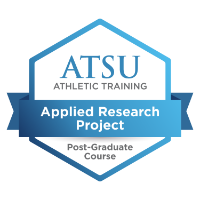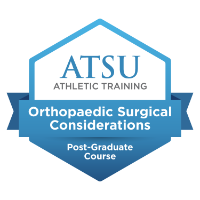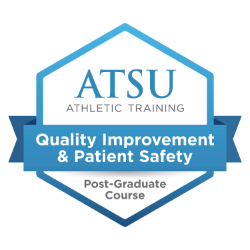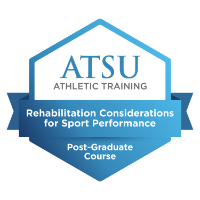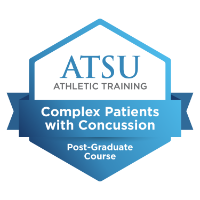QUICK LINKS:
Overview Curriculum Faculty & staff Tuition Admissions Careers & outcomes Student experience FAQs AccreditationAn entry-level doctorate to launch your PT career
The residential Doctor of Physical Therapy (DPT) entry-level program at A.T. Still University is designed for the individual without a physical therapy degree. The three-year top DPT program is offered on the Mesa, Arizona campus, and requires full-time attendance and includes supervised clinical internships. At ATSU, DPT students are prepared to provide exceptional care to their patients with an evidence-based, whole person-focused doctorate of physical therapy curriculum.
Enrollment is limited to 62 students per class. ATSU’s DPT program’s small class sizes set it apart from other DPT schools and allows faculty and staff to work closely with students to help them develop the professional attitudes and clinical problem-solving skills necessary for optimum patient care.
Entry-level DPT program details
For students ready to become physical therapists and serve the underserved, A.T. Still University’s Doctor of Physical Therapy entry-level program offers a personalized doctorate that can be completed at the Mesa, Arizona campus. Cultural sensitivity and competence are built right into the curriculum, which emphasizes ATSU’s whole person healthcare mission as well as evidence-based practice.
Upcoming events
Connect with our occupational therapy faculty and staff at any of these upcoming conferences! Or, join one of our live virtual information sessions to learn more about the entry-level Doctor of Physical Therapy program's curriculum, faculty, admissions process, tuition, and more.
Evidence-based curriculum to prepare PTs
ATSU's entry-level Doctor of Physical Therapy program combines an evidence-based curriculum with expert guidance, equipping students to treat the whole person and serve the underserved. Courses are designed with emphasis on building a strong academic foundation and extensive clinical practice. For more details about the entry-level DPT program and the University, check the University Catalog.
Curriculum overview:
Year 1 credit hours: 59.5
Year 2 credit hours: 49.5
Year 3 credit hours: 33
Total credit hours: 142
DOWNLOAD PROGRAM FACT SHEETDoctor of Physical Therapy courses
The entry-level DPT program at ATSU spans three years, combining foundational coursework with clinical training. In the first year, students study basic sciences, patient care, and rehabilitation, while beginning their first clinical experience. The second year focuses on capstone project development, continued clinical work in musculoskeletal and neurologic rehab, and courses on special populations. In the third year, students complete their capstone projects and participate in three full-time clinical experiences, alongside virtual grand rounds to integrate learning and refine professional skills.
A typical course schedule for the first year consists of the following.
Fall semester
4 Credits
This blended lecture and lab course is designed to prepare health professions students with appropriate knowledge of the structure, function, and clinical application of human anatomy. Prosected human cadaver laboratory is a required and essential component of the course. Following this course, students should be able to identify and discuss the clinical correlation of specific structures of the head, neck, back, thorax and abdomen.
4 Credits
This blended lecture and lab course is designed to prepare health professions students with appropriate knowledge of the structure, function, and clinical application of human anatomy. Prosected human cadaver laboratory is a required and essential component of the course. Following this course, students should be able to identify and discuss the clinical correlation of specific structures of the pelvis, perineum, lower extremity and upper extremity.
2.5 Credits
A study of the mechanical and biophysical principles of movement in humans. Techniques of analysis with qualitative and quantitative measures of movement is included. Laboratory required. Corequisite: ASHS 6100
1 Credits
This course will focus on guiding the professional development of future clinicians. Emphasis is on ethical decision making, introduction to the professional association, and leadership.
2 Credits
In this course students will discuss the theoretical frameworks of teaching and learning and their application to patient education. Development of educational interventions and methods to facilitate adherence will be discussed.
2 Credits
This course includes an overview of a clinical reasoning model and introduction to the basic concepts and components of effective physical therapy documentation. ATSU Clinical Reasoning Model will be introduced and utilized throughout the class. How to document an examination, evaluation, progress note, and interim/daily note will be covered. Practice of interview skills and writing all note types will also be used. Laboratory required.
2.5 Credits
This first therapeutic exercise course provides students with foundational knowledge and skills related to therapeutic exercise. Students will learn how to prescribe aerobic, resistance, range of motion, stretching, and neuromuscular coordination exercises to adults as part of physical therapy patient management. Laboratory required. Corequisite: DPTR 7101, DPTR 7112
2.5 Credits
This course includes the rationale and skills necessary for rehabilitation personnel to deliver basic patient care. The course includes blood-borne pathogens, universal safety precautions, vital signs, positioning, draping, transfers, lifting, sterile procedure and isolation techniques, wheelchair handling, and ambulation with assistive devices, adaptive equipment, and basic patient care equipment. Laboratory required.
1 Credits
A part-time, collaborative clinical experience, under direct supervision of a licensed Physical Therapist. Students are expected to integrate the current fall semester curriculum into the clinical learning with emphasis on interpersonal skills, documentation, and foundational tests and measures. Corequisites: ASHS 6100/6200, DPTR 7101, DPTR 7112, DPTR 7114, DPTR7116
2.5 Credits
A sound scientific basis for clinical practice is provided through this review of applied human physiology, with an emphasis on normal physiology and homeostasis. Principles of muscle physiology and metabolism, energy expenditure, cardiopulmonary physiology, renal physiology, fluid dynamics and endocrinology will be discussed, with examples of responses to exercise and disease. Prerequisites: ASHS 6100, DPTR 7101 Corequisite: ASHS 6200
2.5 Credits
A study of the mechanical and biophysical principles of movement in humans. Techniques of analysis with qualitative and quantitative measures of movement is included. Laboratory required. Prerequisites: ASHS 6100, DPTR 7101 Corequisite: ASHS 6200
1 Credits
A study of the psychological, social, and emotional aspects of illness and disability. Students will explore the biopsychosocial model with attention to its health related implications at the level of the person, family, and society. Students will examine the interaction between mental state, health concerns, and illness for both their patients and themselves, discussing the need for clinician wellness in order to provide compassionate care.
Spring semester
2.5 Credits
This course involves the study of basic pathophysiological processes in disease and trauma including inflammation, immunity, and neoplasms. Additionally, diseases and conditions of the major organ systems are presented with implications of the relationship between pathology and the signs/symptoms of disease for the physical therapist in multiple settings throughout the spectrum of care. ASHS 6100, ASHS 6200, DPTR 7211
2.5 Credits
This second therapeutic exercise course will prepare students to prescribe therapeutic exercise to improve impairments in muscle performance, joint mobility, flexibility, and movement coordination of the extremities and spine. Students will also learn how to use therapeutic exercise to improve common activity limitations. Laboratory required. Pre-requisites:ASHS 6200, DPTR 7116, DPTR 7201
1.5 Credits
This course is a study of the components of normal gait, methods of observational gait analysis, and strategies of problem solving for various gait deviations. Laboratory required. Prerequisites: DPTR 7201
6 Credits
This course provides in-depth study into the anatomy and physiology of the nervous systems with an emphasis on the etiology, pathophysiology, diagnosis, and medical management of neurological diseases and conditions. Pre-requisites: ASHS 6100, ASHS 6200
2.5 Credits
This introductory musculoskeletal course will provide the student with foundational knowledge and skills related to examination, evaluation, diagnosis, prognosis, and interventions for patients with musculoskeletal conditions. This course will provide the student with a framework for clinical reasoning and a baseline skill set that will be built upon in other musculoskeletal courses in the doctor of physical therapy curriculum. Laboratory required. Prerequisites: DPTR 7201, DPTR 7116 Corequisite: DPTR 7316
3.5 Credits
This course will enhance student understanding of the most common research designs, methodologies, and statistics employed in the physical therapy literature. With this knowledge the student will develop the skills necessary for implementation of evidence-based physical therapy practice including development of clinical questions, searching the literature, critical appraisal and application of the literature to various patient scenarios. Progression to “real time” application occurs throughout the course.
0.5 Credits
A part-time community experience where students participate in interdisciplinary teams, delivering the Matter of Balance class to community members using foundational principles of teaching and learning. Pre-requisite: DPTR 7112
0 Credits
This represents the first comprehensive practical. The student will be expected to complete and successfully pass a comprehensive practical exam including content previously covered including but not limited to basic patient care skills, beginning screening techniques, gait, therapeutic exercise, manual muscle testing, range of motion assessment, patient education, and appropriate documentation. Prerequisites: All first year fall courses. Corequisites: First year, first session spring courses
2 Credits
This course provides an understanding of the theory and application of the therapeutic modalities as part of a physical therapy intervention to facilitate the healing process. Modalities included are electrical, thermal, sound, electromagnetic, mechanical, and therapeutic massage. Laboratory required. Prerequisites: DPTR 7201, DPTR 7211, DPTR 7302
2.5 Credits
This musculoskeletal course will prepare students to manage patients with uncomplicated conditions of the lumbopelvic region. Students will learn about examination, evaluation, diagnosis, prognosis, interventions, and outcomes for lumbopelvic conditions. In lab students will practice examination and intervention skills for lumbopelvic conditions. Laboratory required. Prerequisites: DPTR 7316, DPTR 7330
2.5 Credits
This is the first course in a series of courses covering management of adults with impairments, activity limitations and participation restrictions resulting from a disorder, disease or trauma who require multicomponent rehabilitation to improve function. Foundation knowledge of a conceptual framework for clinical practice, theories of motor control and motor learning, examination skills, and manual techniques to improve movement control are emphasized. Laboratory required. Prerequisites: DPTR 7316 Corequisite: DPTR 7320
2 Credits
This course focuses on the study of clinical management of common diseases throughout multiple systems with emphasis on diagnosis, prognosis, medical and rehabilitation management for the physical therapist. An introduction to imaging will also be included to provide an understanding of physical therapists’ role in interpreting imaging. Prerequisite: DPTR 7211, DPTR 7302, DPTR 7330
4 Credits
The first, full-time clinical education experience under the direct supervision of a licensed physical therapist. Over the four weeks, the student will be expected to apply physical therapy principles learned in the first semesters of their classroom work, including gait analysis, patient education, basic therapeutic exercise, documentation, clinical reasoning, basic patient care skills and research. Prerequisites: All first year courses
A typical course schedule for the second year consists of the following.
Fall semester
2.5 Credits
This musculoskeletal course will prepare students to manage patients with uncomplicated conditions of the lower extremity. Students will learn about examination, evaluation, diagnosis, prognosis, interventions, and outcomes for lower extremity conditions. In lab students will practice examination and intervention skills for lower extremity conditions. Laboratory required. Prerequisites: DPTR 7323, DPTR 7430
3 Credits
This course is the second course in a series of courses on management of adults requiring multicomponent rehabilitation to improve function. This course focuses on evaluation and intervention for individuals with brain injury or disease. Laboratory required. Prerequisites: DPTR 7118, DPTR 7320, DPTR 7323, DPTR 7440
3 Credits
This course provides an in-depth study of developmental changes from prenatal through early adulthood. Emphasis is on a systems approach with a focus on the physical, sensory, gross and fine motor changes that take place with typical development. Laboratory required. Pre-requisites: DPTR 7320, DPTR7323, DPTR 7440
2.5 Credits
Students will explore and critically evaluate the literature in a topic area of interest. They will apply the literature to clinical questions using the stages of evidence-based practice, and then will develop research questions and designs to address issues identified in their literature searches. Prerequisites: DPTR 7350
3 Credits
This course covers the pathology, tests and measures; and the assessments, interventions, and evaluation for cardiopulmonary diseases and conditions commonly encountered in physical therapy settings. Laboratory required. Prerequisites: DPTR 7118, DPTR 7211, DPTR 7302, DPTR 7316
2.5 Credits
This musculoskeletal course will prepare students to manage patients with uncomplicated conditions of the cervical and thoracic spine. Students will learn about examination, evaluation, diagnosis, prognosis, interventions, and outcomes for cervical and thoracic conditions. In lab students will practice examination and intervention skills for cervical and thoracic conditions. Laboratory required. Prerequisites: DPTR 8130
2.5 Credits
This course is the third course in a series of courses on management of adults requiring multicomponent rehabilitation to improve function. This course focuses on evaluation and intervention for individuals with conditions such as spinal cord injury, Parkinson’s Disease, vestibular disorders, and amputation. Laboratory is required. Prerequisites: DPTR 8140
3.5 Credits
This course covers assessment and treatment of individuals with developmental and acquired disabilities from birth through 18 years of age. Clinical reasoning is emphasized within early intervention, public school, home, and clinic settings. Laboratory required. Prerequisites: DPTR 8140, DPTR 8145
3 Credits
The course includes an in-depth study of the role of the physical therapist in the acute care setting. Emphasis is on patient care management and clinical decision-making, establishing appropriate plan of care, goal setting, and treatment design, interdisciplinary communication and collaboration, PT role in the emergency department and ICU, and discharge planning. Laboratory required. Prerequisites: DPTR 8140, DPTR 8160
Spring semester
2.5 Credits
This course exposes students to radiologic and other imaging techniques and includes the theory and application of imaging in the rehabilitation setting. Prerequisites: ASHS 6200, DPTR 7420 Corequisite: DPTR 8330
2 Credits
This course is the second course in a series of courses on management of adults requiring multicomponent rehabilitation to improve function. This course focuses on evaluation and intervention for individuals with brain injury or disease. Laboratory required. Prerequisites: DPTR 7118, DPTR 7320, DPTR 7323, DPTR 7440
2 Credits
This course covers the principles of organization, management, and reimbursement of health profession practices. The topics covered include issues in healthcare management, health care insurance, organization socialization and culture, management responsibilities and current real world issues. Prerequisite: DPTR 7110
2.5 Credits
This musculoskeletal course will prepare students to manage patients with uncomplicated conditions of the upper extremity. Students will learn about examination, evaluation, diagnosis, prognosis, interventions, and outcomes for upper extremity conditions. In lab students will practice examination and intervention skills for upper extremity conditions. Laboratory required. Prerequisites: DPTR 8230
1.5 Credits
A study of the clinical management of acute and chronic pain through pharmaceutical, surgical, and conservative methods. Prerequisites: DPTR 7221, DPTR 7320, DPTR 8230 Corequisite: DPTR 8330
2.5 Credits
The study of geriatric physical therapy, including age-related changes in body structure and function, assessment and intervention of impairments, and activity limitations and participation restrictions resulting from common conditions associated with aging. Considerations of personal and environmental factors influencing healthy aging and impacting provision of physical therapy for older adults are covered. Prerequisites: DPTR 8240
2 Credits
This course covers the evaluation and intervention for acute and chronic wounds, including burns, surgical, vascular, pressure, and neuropathic ulcers. Incorporating debridement, dressings, and modalities in the plan of care will be emphasized. Laboratory required. Prerequisites: DPTR 7211, DPTR 7302, DPTR 7420
0.5 Credits
A part-time collaborative clinical experience under direct supervision of a licensed Physical Therapist. Students are expected to apply physical therapy principles previously learned and/or currently being delivered in the didactic and laboratory curriculum. Prerequisites: DPTR 7580, and all second year fall semester courses
2 Credits
This course focuses on federal and state regulatory guidelines pertaining to physical therapy. Emphasis is placed on both national and local associations, lawful practice, supervision, and overall scope of practice. Prerequisite: DPTR 7110
2.5 Credits
This course covers the evaluation and intervention for male- and female-specific health care issues. Pelvic floor dysfunction (incontinence, pelvic pain, and pelvic organ prolapse), antepartum and postpartum care, breast health, testicular and prostate health, menopause, lymphedema, disability and sexuality, intimate partner violence, cardiovascular disease in females, and the female athlete triad will be discussed.
2.5 Credits
This musculoskeletal course will prepare students to synthesize their knowledge and skills related to the physical therapy management of patients with musculoskeletal conditions. Students will apply their clinical reasoning knowledge and skills to case discussions, and practice examination and intervention skills in lab. Laboratory required. Prerequisites: DPTR 8330 Corequisites: DPTR 8440, DPTR 8499
2.5 Credits
This neurorehabilitation course will prepare students to synthesize their knowledge and skills related to the physical therapy management of patients with neurological conditions. Students will apply their clinical reasoning knowledge and skills to case discussions, and practice examination and intervention skills in lab. Laboratory required. Prerequisites: DPTR 8240 Corequisites: DPTR 8430, DPTR 8499
0 Credits
This is the second comprehensive practical in the program. The student will be expected to complete and successfully pass a comprehensive practical exam including content previously covered including but not limited to examination, evaluation, and intervention of neuromusculoskeletal impairments and associated activity limitations and appropriate documentation. Prerequisites: DPTR 7390 and all year two fall semester and first session spring semester courses Corequisites: All year two, second session spring semester courses
0 Credits
Students will participate in service learning opportunities with individuals in the community. These service opportunities must be related to physical therapy. Following the service learning experience(s), each student will complete a written reflection on lessons learned and the overall meaning of the experience
1.5 Credits
Students will explore strategies for managing patients who present with complex medical and/or psychosocial issues. Case study examples will create the framework for exploring the continuum of care for these types of patients. Prerequisites: All course in all previous semesters/sessions Corequisites: DPTR 8440, DPTR 8430
A typical course schedule for the third year consists of the following.
1 Credits
This course is designed to take evidence-based practice into the clinic while students are completing a clinical experience. Students will be expected to pose appropriate clinical questions, perform literature searches to help answer the clinical question, analyze and discuss the relevant research, and formulate a clinical decision based on the available evidence, the patient perspective, and clinical expertise regarding patients they are seeing in their clinical experience. Prerequisites: All courses in the first two years of the curriculum Corequisites: DPTR 9180, DPTR 9280, or DPTR 9380
10 Credits
The first full-time terminal clinical education experience under the supervision of a licensed professional. During the ten-week experience, the student will apply physical therapy principles learned in the first two years of didactic work. Clinical education experiences in the program take place in a variety of practice settings and provide the students with a breadth and depth in professional role modeling and access to patients who are representative of those commonly seen in practice. Prerequisites: All courses in the first two years of the curriculum
0 Credits
Students are required to pass a Comprehensive Written Examination as a condition of graduation. This course helps students fulfill this requirement. Prerequisites: All courses in the first two years of the curriculum.
2 Credits
The student will participate in research and peer-review under faculty direction. The student is expected to submit a completed abstract and poster for oral presentation, as well as the documents supporting the project (IRB approval, literature review, data collection forms, participant data and signed consents) at the completion of the course. Prerequisites: DPTR 8150
10 Credits
The second full-time terminal clinical education experience under the supervision of a licensed professional. During the ten-week experience, the student will apply physical therapy principles learned in the first two years of didactic work. Clinical education experiences in the program take place in a variety of practice settings and provide the students with a breadth and depth in professional role modeling and access to patients who are representative of those commonly seen in practice. Prerequisites: All courses in the first two years of the curriculum
10 Credits
The third full-time terminal clinical education experience under the supervision of a licensed professional. During the ten-week experience, the student will apply physical therapy principles learned in the first two years of didactic work. Clinical education experiences in the program take place in a variety of practice settings and provide the students with a breadth and depth in professional role modeling and access to patients who are representative of those commonly seen in practice. Prerequisites: All courses in the first two years of the curriculum
Industry leading DPT faculty
ATSU faculty for the Doctor of Physical Therapy program are all experts in the physical therapy field and provide responsive and engaged support to all DPT students. Our faculty maintains a rigorous curriculum that offers DPT students entry to the PT profession and fosters lifelong learning, making it one of the top DPT programs on the market.
Hear from our leadership and faculty
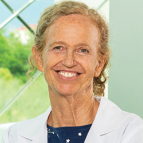
Dr. Ann Lee Burch is the dean of A.T. Still University’s Arizona School of Health Sciences (ATSU-ASHS). Dr. Burch received her doctor of education from Columbia University, Teachers College in 2005. She received her masters of public health from Columbia University, Mailman School of Public Health in 2002 and her masters of physical therapy from Columbia University, College of Physicians and Surgeons in 1989. She was a postdoctoral fellow with the Research Group on Health Disparities at Teachers College, Columbia University. Her BA is in psychology from the University of Rochester.
Prior to her appointment as dean, Dr. Burch served as vice dean for ATSU-ASHS. She served as the chair of the Physical Therapy Department from 2008-January 2012. Prior to ATSU, Dr. Burch was the director of physical therapy at the University of Puerto Rico, Medical Sciences Campus in San Juan, Puerto Rico. She has held administrative and/or faculty positions at the International Center for the Disabled in NY, NY, Mercy College in NY, and Long Island University in Brooklyn, NY.
Dr. Burch’s area of scholarly interest and application of that interest is in knowledge, attitudes, and self-efficacy of health care providers and healthcare professional students towards underrepresented patient/client groups.
Dr. Burch is the author of a Guide to Physical Therapy (Vault Publishers) which was written to increase information access about physical therapy to both high school graduates and re-entry adults. She was a co-investigator on an NIH grant at the University of Puerto Rico exploring the feasibility of an exercise program for breast cancer survivors living in San Juan. Dr. Burch has lived in Symi, Greece, Taipei, Taiwan, Ahmdebad, India and San Juan, Puerto Rico, and is committed to research, teaching and service that further the understanding of the impact of socioeconomic and cultural variables on health.
She was a member of the class of 2014 cohort of Women in Educational Leadership at Harvard Graduate School of Education. In 2017 she was the co-PI on a Centers for Disease Control, Association for Prevention and Teaching grant exploring a population health case study format for teaching and communicating the impact of social determinants of health on health disparities. She was recently appointed a peer reviewer for the Higher Learning Commission.

Marlene Salas-Provance, PhD, MHA, CCC-SLP
Vice Dean
Dr. Salas-Provance, is professor and vice dean of A.T. Still University’s Arizona School of Health Sciences (ATSU-ASHS). Dr. Salas-Provance received her doctorate in speech science from the University of Illinois Urbana-Champaign. She received her masters of health administration from the University of Missouri School of Medicine-Columbia. She holds both a bachelors and masters in Speech Pathology from New Mexico State University.
Prior to her appointment as vice dean, Dr. Salas-Provance served as associate dean of academic and student affairs for the School of Health Professions at the University of Texas Medical Branch Galveston. She served as assistant dean and chair in the College of Education, Department of Special Education and Communication Disorders at New Mexico State University in Las Cruces, New Mexico and department chair in the Department of Communication Sciences and Disorders at the University of Montevallo (AL). She held faculty positions at Fontbonne College and St. Louis University, in St. Louis, MO.
She has made extensive professional contributions to the American, Speech, Language & Hearing Association (ASHA), serving on the Speech-Language Pathology Advisory Council, member of the Financial Planning Board, and the Multicultural Issues Board. She served as coordinator of ASHA’s Special Interest Group (SIG) 14, Communication Disorders and Sciences in Culturally and Linguistically Diverse populations and was a founding member and coordinator of SIG 17, Global Issues in Communication Sciences and Disorders. She is an ASHA Fellow and received ASHA’s highest awards for “Special Recognition in Multicultural Affairs” and “Outstanding Contributions in International Achievement.”
Dr.Salas-Provance has served as a clinical educator throughout her academic career, especially related to children with cleft lip and palate. She is a member of an international medical team with Rotaplast International and has traveled worldwide for over 15 years to provide clinical services to children with cleft palate. She implemented a program for graduate students in speech pathology to provide clinical services in Spanish to children with cleft palate in Lima, Peru. In addition to Lima, Peru she has provided clinical services in China, Bangladesh, Philippines, El Salvador, Dominican Republic, Guatemala and Venezuela.
Dr. Salas-Provance is coauthor of the textbook Culturally Responsive Practices in Speech-Language and Hearing Science (Plural Publishing, 2019) which meets the needs for training students in healthcare professions regarding practice with individuals from culturally and linguistically diverse populations. Her research is focused on attitudes towards disability by diverse populations and addressing the use of language interpreters during healthcare and educational encounters.
Over the past ten years she has lectured extensively to international audiences, both in English and Spanish, including as invited speaker for the Congreso Internacional en Trastornos de la Comunicacion at Escuela de Fonoaudiologia (Speech Language Pathology / Audiology) de la Universidad de Talca, Chile and for the Department of Otolaryngology, Hospital Nacional Arzobispo Loayza, Lima, Peru, Endoscopic Evaluation of Velopharyngeal Dysfunction. She was invited keynote speaker for the First International Congress in Speech-Language Pathology and Orthodontics in the area of cleft lip and palate in Lima, Peru.
Dr. Salas-Provance was selected for the American Council on Education (ACE) Women’s Leadership Program and attended the National Women’s Leadership Forum in Washington DC (2017) for advancing female executives in higher education.
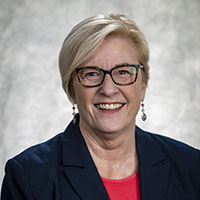
Lori Bordenave, PT, DPT, PhD
Chair
Dr. Bordenave, PT, DPT, PhD, is the director of the doctor of physical therapy program and a Professor. She received her bachelor’s degree in physical therapy from St. Louis University (1985), a master’s degree in education from Arizona State University (2000), and her DPT from A.T. Still University, Arizona School of Health Sciences (2007). In 2016, she completed her PhD at Nova Southeastern University in physical therapy. Dr. Bordenave joined the physical therapy faculty in 1996. Her research interests include qualitative research exploring teaching and learning, professional development, and the impact of interventions. Additionally, she is engaged in research exploring women’s health issues and evidence-based practice. She teaches a course in educational theory and practice within the physical therapy program and continues to teach both the American Physical Therapy Association’s level 1 and level 2 clinical instructor credentialing courses.
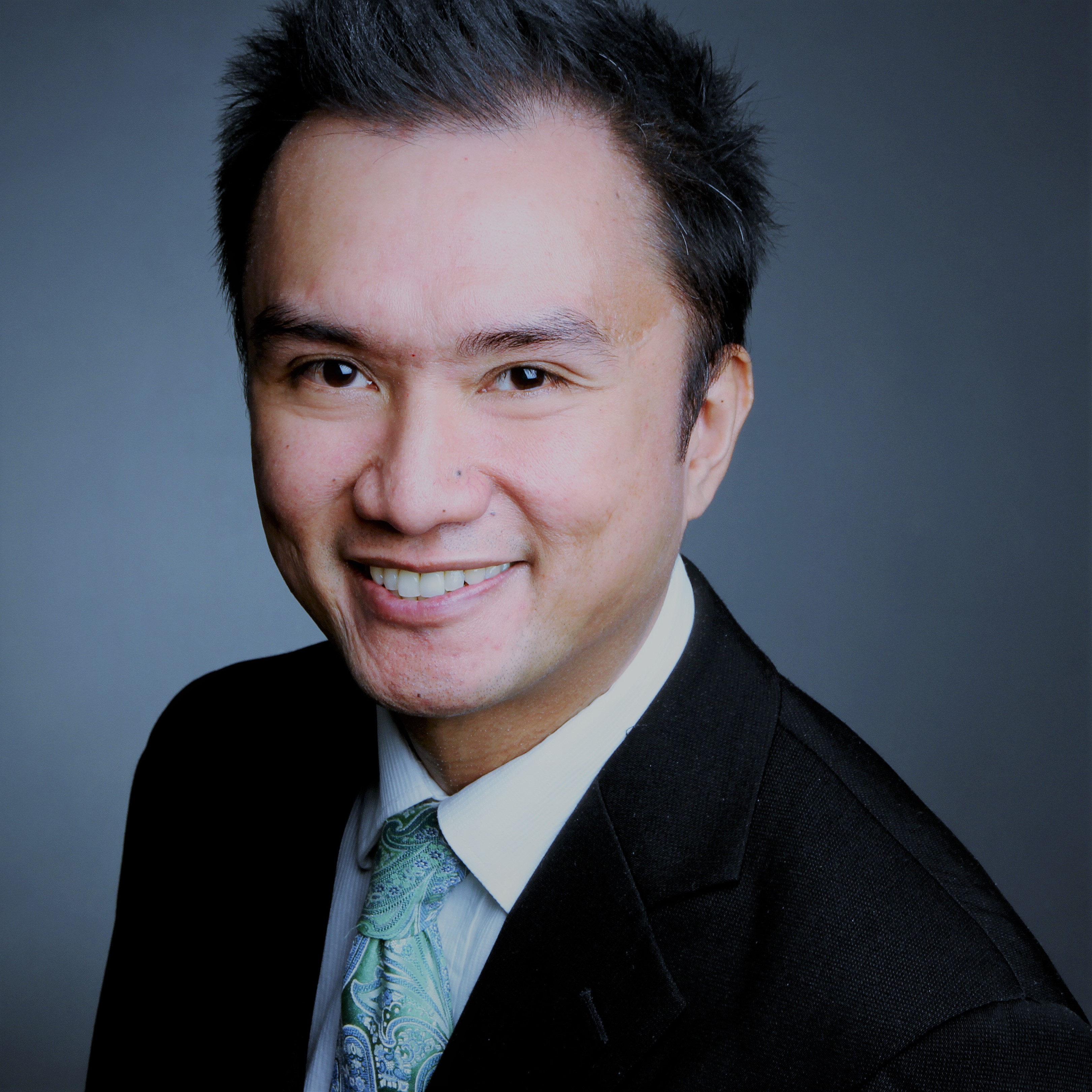
Jeffrey J.D. Andrion, PT, PhD, MA, BScPT
Assistant Professor
Dr. Jeffrey Andrion is an Assistant Professor (tenure track) at the Doctor of Physical Therapy Residential Program. His professional portfolio spans the areas of clinical practice, teaching, research, and humanitarian work. He is passionate about teaching global health, social justice, and qualitative research. His primary research interests are in the areas of critical physical therapy labor-migration studies, health equity, and global health. His combined 15 years of international development work allowed him to work in several community-based and disability-related projects in the Philippines, Africa, and South America. He has over twenty five years of clinical experience and is a licensed physical therapist in three countries (US, Canada, and the Philippines). Dr. Andrion is an Adjunct Lecturer of the Department of Physical Therapy at the University of Toronto where he is also the Chair of the Philippine Working Group of the International Centre for Disability and Rehabilitation.
Dr. Andrion completed his Bachelor’s Degree in Physical Therapy at Capitol University (Philippines), his Canadian equivalency studies in physical therapy at McGill University (Montreal), and both his Master’s in Critical Disability Studies and PhD in Health at York University (Toronto). He is a Credentialed Clinical Instructor of the American Physical Therapy Association and completed the Certificate in Interprofessional Collaboration at Michener Institute (Toronto) and Certificate in Global Health Delivery at Harvard University (Cambridge, MA).
For his outstanding contributions to the physical therapy profession and to the larger community, Dr. Andrion is the recipient of the University of Toronto’s Exceptional Achievement Award in Physical Therapy (2013) and the Centenary Medal of Excellence from the Canadian Physiotherapy Association (2021), among others.
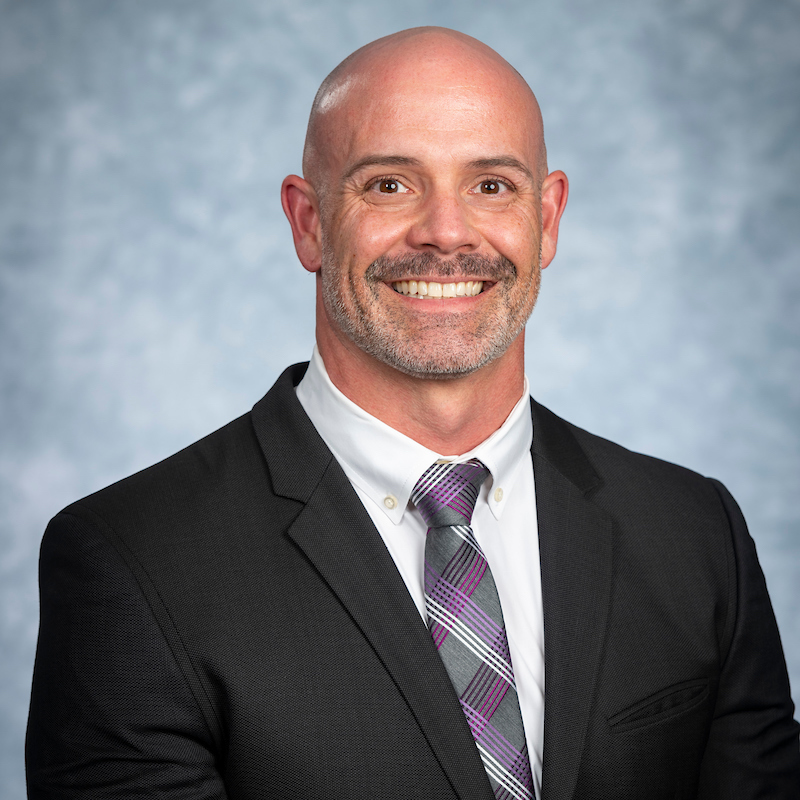
J.A. Graves, PT, DPT
Co-Director of Clinical Education (DCE)
J.A. Graves is the Co-Director of Clinical Education (DCE) and an assistant professor in the Doctor of Physical Therapy program. He received his bachelors degree in Clinical Exercise Physiology from Central Washington University in 2011 and his Doctor of Physical Therapy degree from Midwestern University in 2015.
Dr. Graves is a Board-Certified Orthopedic Clinical Specialist through the ABPTS and a Certified Clinical Instructor through the APTA. Dr. Graves specializes in orthopedic and sports rehabilitation with a special interest in the overhead throwing athlete and the shoulder. He served as a Clinical Instructor for seven years while treating patients in an outpatient orthopedic setting. Dr. Graves’ professional interests include clinical education, biomechanics, orthopedics/sports rehabilitation, and exercise prescription. Dr. Graves joined the ATSU faculty in 2022.
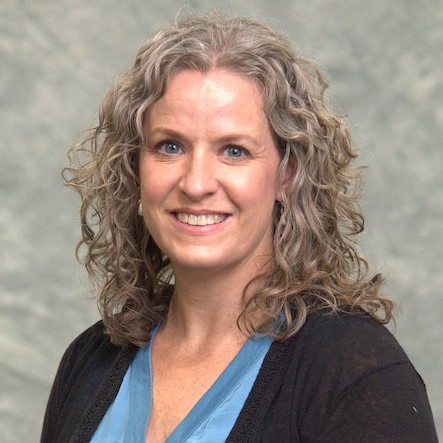
Kellie C. Huxel Bliven, PhD, ATC
Core Faculty
Kellie C. Huxel Bliven, PhD, ATC is the Chair of the Department of Interdisciplinary, where she is a professor and director of clinical anatomy. She also is a core faculty in the Physical Therapy Department and has an appointment in ATSU’s Arizona School of Dentistry and Oral Health where she co-teaches musculoskeletal and head & neck anatomy courses. Previously, Dr. Bliven has been a faculty member in ATSU’s Kinesiology (formerly human movement) and Athletic Training programs, as well as the Athletic Training Department at Indiana State University. Dr. Bliven’s current line of research on understanding and improving shoulder function and health addresses four areas: mechanisms of shoulder stability, muscle activation during rehabilitation, adaptations in the throwing shoulder, and health-related quality of life in throwing athletes. In addition to her faculty responsibilities, Dr. Bliven serves as the director of the Interdisciplinary Research Laboratory and as the vice chair of the Institutional Review Board at ATSU-Mesa campus. She is the editor of the Journal of Sport Rehabilitation and serves on professional committees such as the BOC Exam Development Committee. Dr. Bliven received her bachelor’s degree in biology and physical education from Denison University in Granville, Ohio; master’s degree in kinesiology from Indiana University in Bloomington, Ind.; and doctoral degree in kinesiology with an athletic training emphasis from Temple University in Philadelphia, Pa.

David Doubblestein, PT, PhD
Associate Professor
David is an Associate Professor in the Doctor of Physical Therapy program. He received his Masters of Science degree in Physical Therapy from Grand Valley State University in 1997 and his Doctor of Philosophy in Physical Therapy from the University of Michigan in 2021. He has predominantly worked in outpatient orthopedics, including his private practice. David is a Board-Certified Clinical Specialist in Orthopaedic Physical Therapy, a LANA certified lymphedema therapist, and a certified McKenzie Diagnosis and Therapy practitioner. He is passionate about lymphology as it extends across all disciplines of physical therapy. He is the author of the book Manual Lymphatic Techniques for the Orthopedic Manual Therapist. His research interests are in orthopedics, edema, lymphology, and lymphatic disorders. Professor Doubblestein joined ATSU’s faculty in 2020.

Deanne Fay, PT, DPT, PhD
Professor
Deanne Fay is a professor in the doctor of physical therapy program. Dr. Fay received her professional education from Marquette University (1990), a master’s degree in kinesiology with an emphasis in motor development from the University of Wisconsin (1995), a DPT from A.T. Still University School of Health Sciences (2007) and a PhD in physical therapy from Nova Southeastern University (2016). Dr. Fay is a board-certified pediatric clinical specialist emeritus of the American Physical Therapy Association. She has over 30 years of experience primarily in neurological and pediatric settings. Dr. Fay joined the physical therapy faculty in 1995. Her research interests include assessment in pediatrics, effectiveness of community-based pediatric and adaptive sports programs, and the development of evidence-based practitioners. She is also involved with sports for the physically disabled, serving as a track and field national and international classifier for Paralympic events. In 2012, Dr. Fay was awarded Physical Therapist of the Year by the Arizona Physical Therapy Association.

Jessica Hayes, PT, DPT
Assistant Professor
Jessica Hayes is an assistant professor at A.T. Still University in the physical therapy program. She received her doctor of physical therapy from A.T. Still University in 2016 and bachelor’s degree in Music Education with a minor in chemistry from North Central College in 2009. Dr. Hayes has completed certifications in Hippotherapy through the AHA and is a credentialed clinical instructor through the APTA. Her clinical practice is focused in the areas of acute care, and adult inpatient and adult/pediatric outpatient cardiopulmonary rehabilitation. She specializes in breathing mechanics, facilitation techniques, and application to improve patient quality of life, through her advanced studies with Dr. Mary Massery, PT, DPT, DSc. Her professional interests include reframing cardiopulmonary rehabilitation in the western states, improving patient outcomes post-lung transplantation, and increasing community knowledge of available cardiopulmonary interventions and supplemental oxygen use. Dr. Hayes joined the ATSU faculty in 2021 and her primary teaching areas include cardiopulmonary, acute care, and complex patient rehabilitation.

Cheri Hodges, PT, DPT
Professor
Dr Hodges is passionate about post-professional education and mentoring young professionals entering the profession of physical therapy. She was the inaugural orthopedic residency program director and continues to serve on faculty for the residency program. Dr. Hodges received her entry level physical therapy degree from Northern Arizona University and continued on to the University of South Australia for her masters degree in manipulative therapy. From there she received her doctorate at A.T. Still University of Health Sciences. She has over 30 years of clinical experience in orthopedic physical therapy and has been teaching in the entry-level program at ATSU since 2008.
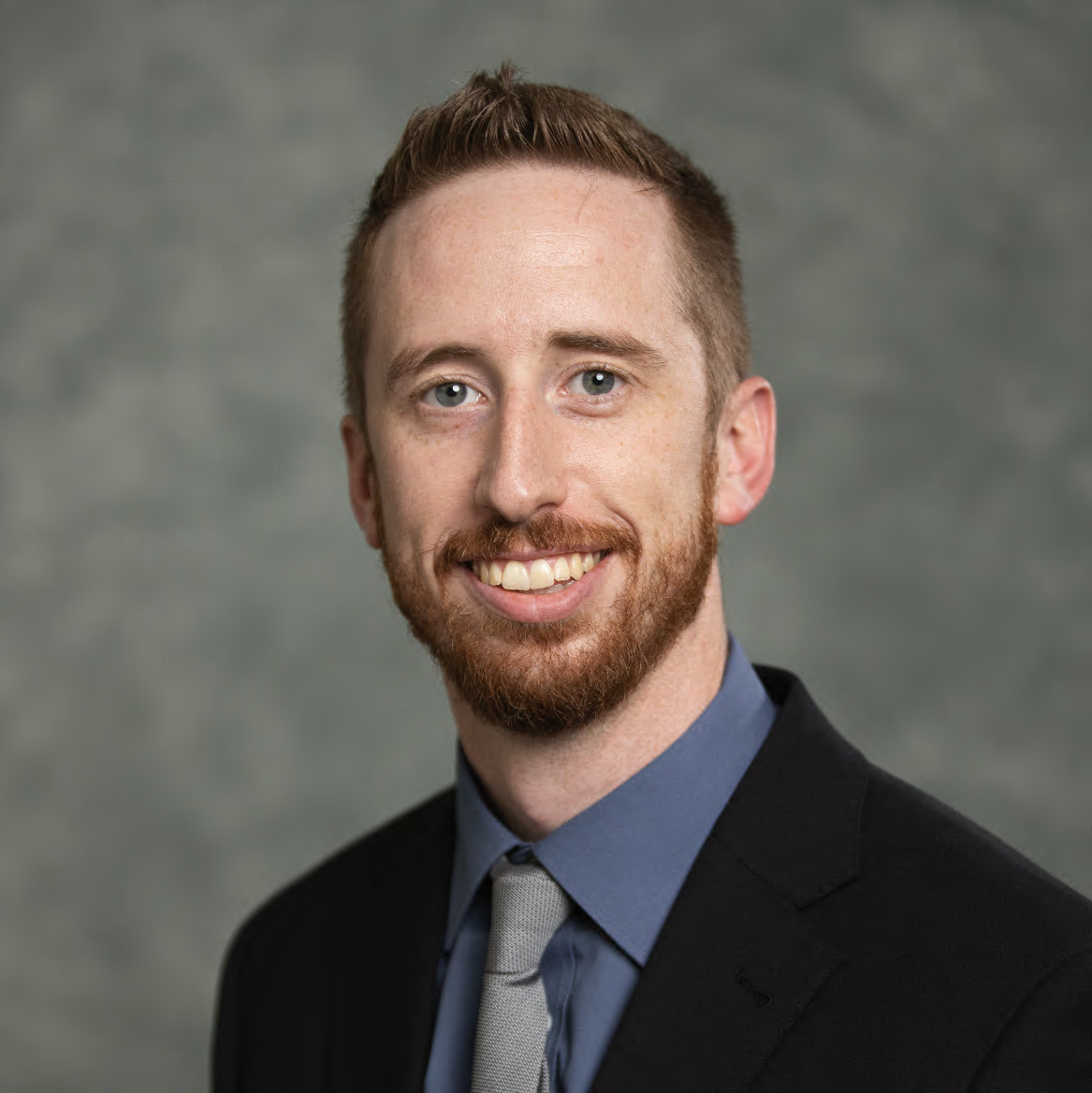
Jason Karstens PT, DPT
Director, Physical Therapy Neurologic Residency Program
Dr. Karstens is an associate professor for the residential program as well as director of the ATSU neurologic physical therapy residency program. He had been adjunct faculty within the neurologic department of the DPT program at ATSU for 3 years prior to obtaining this position. He is a graduate of the neurologic residency program and has been a board-certified specialist in neurologic physical therapy (NCS) since 2019. Prior to his postdoctoral specialization, he received his bachelor of arts degree in exercise science followed by a DPT from ATSU residential program in Mesa, AZ. Dr. Karstens has clinical experience working in an outpatient neurologic therapy setting and continues to practice in a neurologic/brain injury unit within an inpatient rehabilitation hospital. His research interests are in clinical application of neuroplastic inducing interventions to maximize global outcomes in individuals who have sustained neurologic injury.

Pamela Kays, PT, DPT, EdD
Associate Professor
Pamela Kays is an Associate Professor at A. T. Still University in the Doctor of Physical Therapy program. She holds a Bachelor of Science in Kinesiology with an emphasis on movement science, a Doctor of Physical Therapy, and a Doctor of Education in health professions. She is passionate about her role in preparing future clinicians to assist others in treatment, recovery, and improving quality of life. Dr. Kays joined the ATSU faculty in 2017, and her primary teaching areas are biomechanics, pathophysiology, pelvic/women's health, psychosocial aspects of healthcare, and clinical gait analysis. She is a Board Certified Women's Health Clinical Specialist, and she continues to provide physical therapy services to women with pelvic conditions.

Jamie Kuettel, PT, DPT
Associate Professor
Dr. Kuettel is an Associate Professor at A.T. Still University in the physical therapy program where she teaches in the neurologic and geriatric curriculums. She is board-certified in both neurology and geriatrics by the American Board of Physical Therapy Specialties and also specializes in vestibular rehab. Dr. Kuettel has over 6 years of clinical experience with focus on neurorehabilitation in adults as well as mentorship of physical therapy graduate students, neurologic residency program participants and coordination of neurologic residency programs. Dr. Kuettel received her bachelor’s degree from the University of Arizona (2006), her doctorate in physical therapy from A.T. Still University School of Health Sciences (2010) and completed a neurologic residency program at Scottsdale Healthcare/NAU (2012). She is a member of the American Physical Therapy Association (APTA), and actively services on the APTA House of Delegates. Her research interests are within neurologic assessment using standardized outcome measures, rehabilitation techniques in adults with neurologic disease and injury and student perceptions of older adults. She joined ATSU’s physical therapy faculty in 2016.

Virginia L. Little, PT, PhD
Associate Professor
Virginia Little, PhD, is an Associate Professor of physical therapy at ATSU-ASHS. Dr. Little received her master’s degree in physical therapy from Springfield College (2000) and PhD in rehabilitation science from the University of Florida (2013). She completed postdoctoral training in neurophysiology through the University of Florida and the Veteran’s Administration Geriatric Research, Education, and Clinical Center in Gainesville, Fla.
Dr. Little is a board-certified clinical specialist in neurologic physical therapy with over 15 years of clinical experience in adult neurorehabilitation, in both the in- and out-patient settings. Dr. Little’s research interests include the mechanisms of gait impairment and gait recovery following stroke, and the use of clinically-accessible mobile technology for the use of gait analysis. She joined the physical therapy faculty in 2019.

Cory Manton, PT, DPT, PhD
Director, Physical Therapy Orthopedic Residency Program
Dr. Manton is the program director of the physical therapy orthopedic residency program and is an associate professor in physical therapy. Dr. Manton received his doctor of physical therapy degree from A.T. Still University School of Health Sciences in 2001. He holds a bachelor’s degree from Arizona State University in exercise science. Dr. Manton has over 15 years of physical therapy experience in the outpatient orthopedic setting. His teaching areas include musculoskeletal conditions and therapeutic exercise. Dr. Manton’s research interests include physical therapy management of patients with musculoskeletal conditions, and physical therapy education.

Sara Parker, PT, DPT
Co-Director of Clinical Education
Sara Parker is the Co-Director of Clinical Education (DCE) and an assistant professor in the residential physical therapy program. She received her Doctor of Physical Therapy degree from A.T. Still University in 2014, and bachelor’s degree in Health & Exercise Science from Colorado State University in 2009. Dr. Parker is Board-Certified in Neurology by the American Board of Physical Therapy Specialties and has also completed certification as a credentialed clinical instructor though the APTA. She specializes in adult neurorehabilitation/vestibular care with over seven years of clinical experience in both outpatient and acute rehabilitation settings. In addition to clinical care, she has served as Site Coordinator of Clinical Education (SCCE). She is passionate about the adult neurological patient population and has participated in several community events for Parkinson’s Disease, including community outreach and fundraisers. Her professional interests include clinical education, neurorehabilitation, vestibular, and geriatrics. Dr. Parker joined the ATSU faculty in 2021.
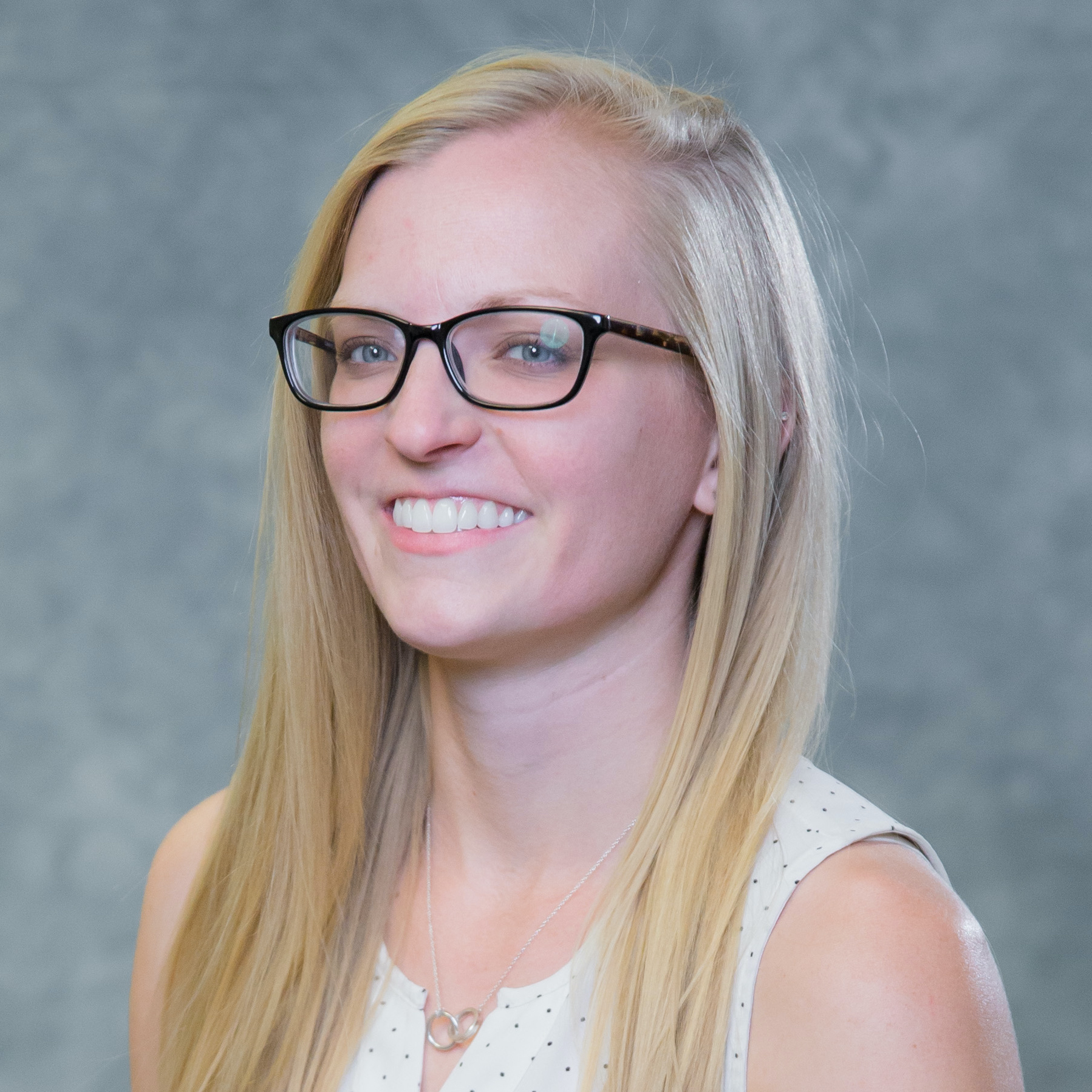
Kelsey J. Picha, PhD, ATC
Associate Professor
Kelsey J. Picha, PhD, ATC is an Associate Professor in the Department of Interdisciplinary Health Sciences where she co-teaches Clinical Anatomy. Dr. Picha has previously taught functional anatomy and assisted with several other courses related to the human body and patient care. Her research interests are in the areas of patient adherence to rehabilitation and social determinants of health in athletic health care. Dr. Picha has secured grant funding both internally and externally for her work. She currently serves on several professional committees including the AACA Branding, Promotion, and Outreach Committee, the NATA Education Advancement Committee, and AZATA Governmental Affairs Committee. Dr. Picha also serves as a section editor for the Clinical Practice in Athletic Training Journal and serves on the editorial board for the Journal of Sports Rehabilitation. Dr. Picha earned her bachelor of athletic training degree from Minnesota State University, Mankato, master of science degree in post-professional athletic training from A.T. Still University, and earned her doctor of philosophy degree in rehabilitation sciences from the University of Kentucky.
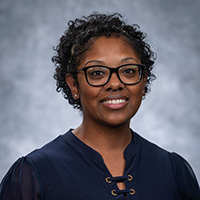
Monica Queen, PT, DPT
Assistant Professor
Monica Queen is an Assistant Professor in the Doctor of Physical Therapy program. She received her Bachelor of Science in Kinesiology from the University of Las Vegas, Nevada in 2006, and her Doctor of Physical Therapy from Western University of Health Sciences in 2010.
Dr. Queen is Board-Certified in Neurology by the American Board of Physical Therapy Specialties and has completed certification as a credentialed clinical instructor through the American Physical Therapy Association. She has clinical experience in outpatient and inpatient pediatrics, as well as acute care and neurorehabilitation in the adult patient population. She is passionate in providing quality care to patients across the lifespan.
Dr. Queen joined the ATSU faculty in 2022, and her primary teaching areas include neurorehabilitation, human development and pediatrics.

Carrie Robinson, PT, DPT
Assistant Professor
Carrie Robinson is an assistant professor at A.T. Still University in the physical therapy program. She received her doctor of physical therapy degree from Northern Arizona University in 2012 and bachelor’s degree in exercise science from Brigham Young University in 2009. She completed the orthopedic residency at Massachusetts General Hospital Institute of Health Professions and is a Board Certified Orthopedic Clinical Specialist. Dr. Robinson’s primary clinical practice has focused on outpatient orthopedics, and she has functioned as a clinical instructor, lab instructor, and term faculty at Massachusetts General Hospital Institute of Health Professions. Her professional interests and research include bio-mechanics, therapeutic exercise, working with young athletes and dancers, treating orthopedic populations through the life span, and physical therapy education. Dr. Robinson joined ATSU’s faculty in 2019.

Tammy Roehling, PT, DPT, PhD
Associate Professor
Dr. Roehling is an associate professor of physical therapy and director of the post-professional doctor of physical therapy program. She received her bachelor of science in exercise science from the University of Arizona, her master of physical therapy from Emory University, her doctor of physical therapy from ATSU, and her doctor of philosophy in physical therapy from Nova Southeastern University. She has worked in a variety of settings with a focus on wound management and women’s health, and currently owns a private practice specializing in pelvic floor dysfunction. She has taught wound care for a national CEU company and has co-authored a chapter in Abernathy’s Medical Secrets: Wound, Ostomy, and Continence Nursing Secrets. Dr. Roehling teaches wound management and gender healthcare in the physical therapy department. Her research interests are in academic integrity and pelvic floor dysfunction.

Erlinda Cisneros-Johnson
DPT Program Manager
Erlinda joined A. T. Still University in 2011 and most recently joined the Physical Therapy Department as program manager. Erlinda brings over 20 years of service skills to the Physical Therapy Department . As the program manager, she provides comprehensive support for the residential Doctor of Physical Therapy Program and the Neurologic and Orthopedic Residency Programs. She oversees the residential admissions process, program events, and administrative responsibilities pertaining to faculty, staff and students.

Tresa Moralez
Assistant to the Chair
Mrs. Moralez is the Assistant to the Chair. She joined the Physical Therapy Department in 2008 and brings over 10 years of experience. She provides support to the Department Chair in addition to assisting with administrative duties, departmental processes, department special projects, and assisting with the needs of the faculty and students.
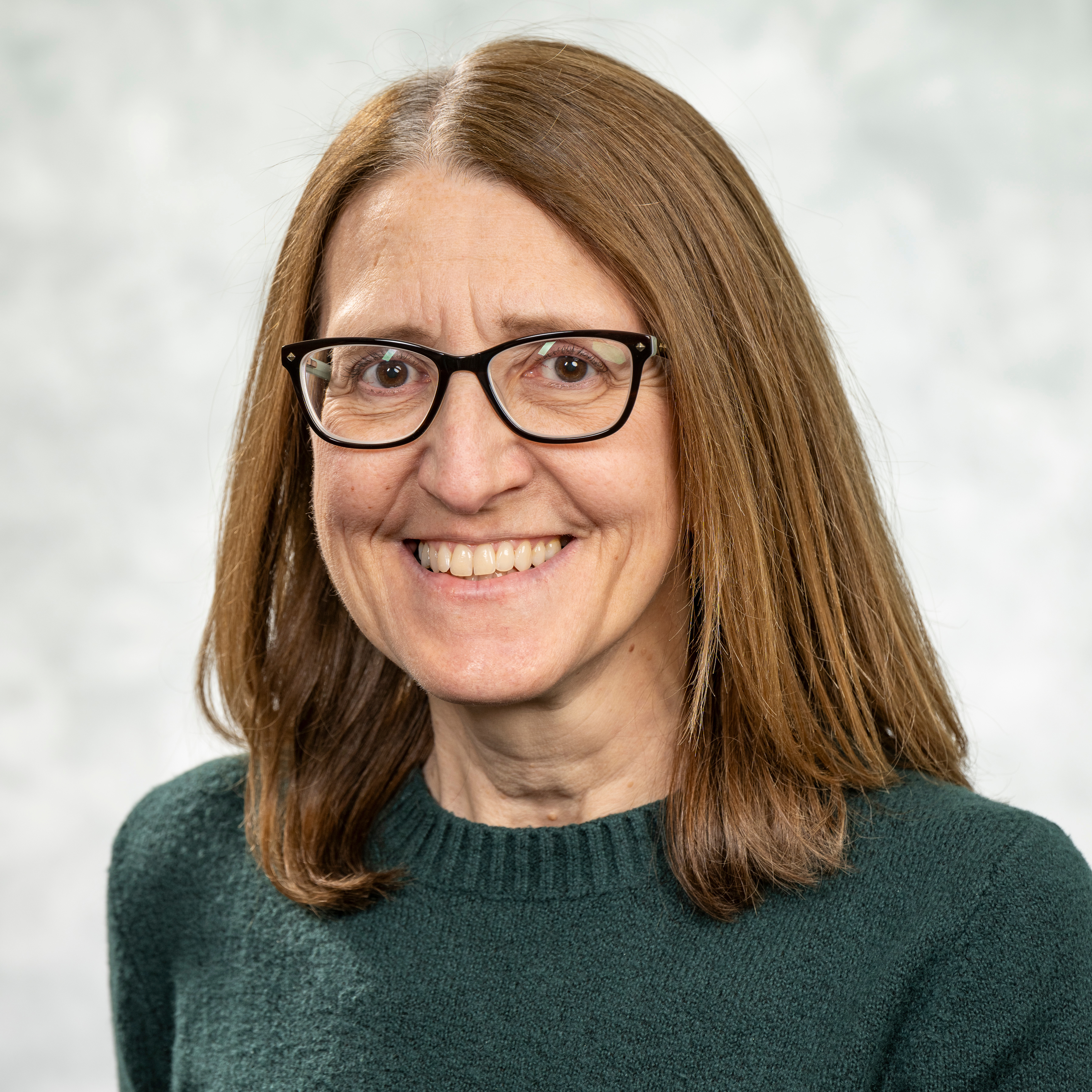
Joanna Pelton
Administrative Assistant
Joanne joined the Physical Therapy Department in 2022 as Administrative Assistant. She brings over 15 years of higher education support experience to the role, in which she provides support for the Neurologic and Orthopedic Residency Programs. In addition, Joanne assists the program manager with administrative duties and management of the residential DPT students’ admission requirements.

Cassie Reynolds
Clinical Education Administrative Assistant
Cassie joined the Physical Therapy Department in 2017 and brings over 9 years of experience to her role as the Clinical Education Administrative Assistant. Cassie provides support to the clinical education portion of the curriculum by completing administrative responsibilities pertaining to students and clinical sites.
Tuition and expenses
Tuition and fees for the Doctor of Physical Therapy program are designed to cover the cost of high-quality education and essential student services. In addition to tuition, students are responsible for a student technology fee, which helps support access to critical student resources. Please note that tuition rates and fees are subject to change, please review the tuition and fees breakdown for the most up-to-date information or review the financial fact sheet for the Doctor of Physical Therapy students.
Financial aid
Investing in your future as a student is one of the most important steps you will take. ATSU can help you create a financially sound aid package that will let you focus on your education instead of worrying about how you will finance it. To learn more about your options visit Enrollment Services or contact them at enrollmentservices@atsu.edu or call 660.626.2019.
Admissions
Applicants to the Doctor of Physical Therapy entry-level program must submit their application through the Central Application Service for Physical Therapists (PTCAS), which allows candidates to apply to multiple participating PT programs with a single application. Official transcripts must be sent directly to PTCAS as part of the process. For more information on how to apply, please visit the PTCAS website. The deadline to apply for ATSU’s PT program is June 3, and since enrollment operates on a rolling admissions basis, applicants are encouraged to apply early.
Each applicant must submit information listed below to the PTCAS. All questions regarding PTCAS applications must be directed to the PTCAS website.
- Baccalaureate Degree: Official transcripts for all college level courses must be submitted directly from the institution to PTCAS. Official transcripts showing an earned baccalaureate degree from a regionally accredited institution must be submitted prior to enrollment.
- Prerequisite Courses: Applicants must complete all prerequisite courses prior to the start of school. Applicants with four (4) or more outstanding prerequisites will not be considered for admission. Applicants must show proof of enrollment in any pending prerequisite courses by the end of the Spring quarter.
- Applicants must have achieved a minimum 2.80 cumulative GPA and a 2.80 prerequisite GPA (on a 4.0 scale). These GPAs are calculated and reported by PTCAS. The ATSU Admissions Department does not recalculate GPAs.
- Physical Therapy Observation: Applicants are required to obtain 30 contact hours with a physical therapist in a variety of physical therapy settings prior to application submission. Exposure to multiple types of physical therapy practices such as, geriatrics, pediatrics, neurology and orthopedics is desired, and a consideration in the decision to offer admission. Students may contact hospitals, nursing homes and outpatient physical therapy clinics to meet the required observation hours. Observation hours do not have to be verified.
- Applicants are encouraged to include all experiences of volunteer participation, extracurricular activities and work experiences. Please include all experiences, even those that may seem unrelated to the profession of physical therapy, as the admissions committee reviews applications for sustained commitment to extracurricular activities, engagement in the community, service to under-served populations, experience across the continuum of disability and multicultural experiences.
- ATSU maintains priority consideration agreements with Arizona State University (ASU), Grand Canyon University (GCU), Truman State University (TSU) and Chaminade University of Honolulu.
- Secondary or supplemental application: Applicants meeting the minimum GPA requirements will be invited by ATSU via email to submit a secondary application. This application must be submitted to ATSU for admission consideration.
- All students are required to demonstrate proficiency in English when applying to the Arizona School of Health Sciences, A.T Still University. For non-native speakers, methods by which you can demonstrate your English Proficiency are published in the General Admissions section. International Admissions Requirements
- Interview: Applicants who are considered potential candidates may be required to participate in an applicant interview process. Personal interviews are conducted both on-site and by video conference. Dates are not released prior to reviewing an applicant’s application.
- Upon an offer of acceptance to the DPT program at A.T. Still University, applicants must certify they meet the Minimal Technical Standards for admission and matriculation, which can be found in the Online University Catalog.
Applicants who wish to be considered for more than one program must submit a separate application and fee, transcripts, and official GRE scores and references for those health sciences programs where applicable. Acceptance to ATSU-ASHS is to a specific program and is not transferable to any other program. Application materials are not transferable from one application year to another.
For additional information, contact the program manager: 480.219.6162 or ecisnerosjohnson@atsu.edu
*Letters of recommendation are not required.
Each student must submit proof of satisfactory completion at a minimum grade of “C” for each of the following courses by enrollment. For questions, please contact Residential Admissions office at 480.219.6000 or email admissions@atsu.edu.
- Biology/Anatomy: Two courses in Human Anatomy and Human Physiology, each including two semesters lectures and labs with a minimum of 8 semester/12 quarter hours (e.g. Human Anatomy and Physiology I and II or Human Anatomy and Human Physiology, all with lecture and lab).
- Biology/Zoology: Two courses in Biology/Zoology, each including two semesters lectures and labs with a minimum of 8 semester/12 quarter hours (e.g. General Biology I and II, Genetics, Molecular or Cellular and Microbiology, all with lecture and lab).
- General Chemistry: Two courses in Chemistry, each including two semesters lectures and labs with a minimum of 8 semester/12 quarter hours (e.g General Chemistry I and II, Organic Chemistry or Inorganic Chemistry, all with lecture and lab).
- Physics: Two courses in Physics, each including two semesters of lectures and labs with a minimum of 8 semester/12 quarter hours (e.g. General Physics I and II or College/University Physics I and II, all with lecture and lab).
- Statistics: One course, minimum of 3 semester/4 quarter hours (e.g. Applied Statistics, Elements of Statistics or Statistics of Bio-Sciences).
- Psychology: Two courses in Abnormal psychology and developmental/child psychology, covering lifespan or conception/birth through adulthood, with a minimum of 6 semester/8 quarter hours (No substitutes accepted, including general or introductory psychology).
- Exercise Physiology: One course, minimum of 3 semester/4 quarter hours.
* Will accept pass/fail prerequisite courses for Spring and Summer 2020
ATSU maintains priority consideration agreements with the following universities and require a letter of intent (View Letter of Intent Requirements).
Arizona State University
Students who will graduate or have graduated within one year with a bachelor’s degree and major in Kinesiology or Exercise and Wellness are eligible for priority consideration. ATSU Doctor of Physical Therapy Program reserves 7 seats annually for ASU Kinesiology majors and 7 seats for Exercise and Wellness majors. Interested applicants must submit a letter of intent to Dr. Lori Bordenave at the time they submit their PTCAS application. The deadline to apply for a priority consideration agreement seat is November 1. Students must meet all admissions requirements in order to be considered.
Chaminade University of Honolulu
Students who will graduate or have graduated within one year with a Bachelor’s degree and major are eligible for priority consideration. ATSU Doctor of Physical Therapy Program reserves 4 seats annually for Chanminade graduates. Interested applicants must submit a letter of intent to Dr. Lori Bordenave at the time they submit their PTCAS application. The deadline to apply for a priority consideration agreement seat is November 1. Students must meet all admissions requirements in order to be considered.
Grand Canyon University
Students who will graduate or have graduated within one year with a Bachelor of Science, Pre-PT Programs in Biology or Exercise Science degree are eligible for priority consideration. ATSU Doctor of Physical Therapy Program reserves 7 seats annually for Pre-PT majors. Interested applicants must submit a letter of intent to Dr. Lori Bordenave at the time they submit their PTCAS application. The deadline to apply for a priority consideration agreement seat is November 1. Students must meet all admissions requirements in order to be considered.
Truman State University
Students who will graduate or have graduated within one year with a Bachelor’s degree In Health or Exercise Science (HES) are eligible for priority consideration. ATSU Doctor of Physical Therapy Program reserves 7 seats annually for HES majors. Interested applicants must complete the following: Submit a letter of intent at the time they submit their PTCAS application, have a letter of endorsement from an academic advisor. Both forms should be emailed to Dr. Lori Bordenave. The deadline to apply for a priority consideration agreement seat is November 1. Students must meet all admissions requirements in order to be considered.
Careers and outcomes
Physical therapists are healthcare professionals who work to restore movement and function through direct treatment, education, consultation, and management of rehabilitation resources. Physical therapy is defined as the examination, treatment, and instruction of human beings to detect, assess, prevent, correct, alleviate, and limit physical disability, movement dysfunction, bodily malfunction, and pain from injury, disease, and any other bodily and mental conditions.
PT doctoral students and alumni
When you gain entry to ATSU’s Doctor of Physical Therapy program, you are joining a cohort that is dedicated to whole person healthcare and the advancement of the PT profession. Hear from our alumni how their experiences with ATSU propelled their careers as doctors of physical therapy.
Hear from our students and alumni

PT Life Moments
Our students and alumni share how ATSU’s program is empowering their practice.
Frequently asked questions
A doctor of physical therapy is the clinical degree required for individuals desiring to practice as physical therapists.
The Doctor of Physical Therapy program participates in the Physical Therapy Central Application Services (PTCAS). PTCAS provides a web-based service that allows applicants to submit a single application to multiple participating PT programs. All official transcripts are sent electronically to PTCAS as part of the application process. Please visit PTCAS at www.ptcas.org for more information on how to apply for admission. PTCAS opens during the first week of July for applicants to apply for the next year’s class. If an applicant meets the minimum 2.80 cumulative and pre-requisite GPA requirement, they will be invited by Doctor of Physical Therapy program, via email to submit an electronic secondary (supplemental) application. The deadline to apply with PTCAS for the ATSU’s PT program is June 3. Program enrollment is based on rolling admissions and applicants are encouraged to apply early as all applications are processed when received at ATSU.
Average GPA for the class of 2025 was 3.43 Cumulative and 3.38 Prerequisite.
A student may have any degree, as long as all admissions requirements and prerequisite courses are fulfilled and you have been awarded a bachelors degree.
ATSU accepts prerequisite courses from any accredited community college or university. Prerequisite courses can be taken online or in a traditional format.
Prerequisite courses can be completed during a Summer term as long as the official grade is posted by July 1st. At this time, students will be required to submit an updated transcript to our Admissions department. Applicants with three or fewer outstanding prerequisites will be considered for admissions.
At this time, our courses are only open to students enrolled in ATSU programs. Therefore, ATSU does not allow for non-enrolled students to complete their prerequisite courses with the University.
Those with further questions about ATSU’s prerequisite course policies may contact Erlinda Cisneros-Johnson, program manager, via email.
You are required to have a minimum of 30 hours of experience with a physical therapist. This is documented in your PTCAS application. Exposure to multiple types of physical therapy practices such as geriatrics, pediatrics, neurology and orthopedics is desired, and a consideration in the decision to offer admission. Students may contact hospitals, nursing homes, and outpatient physical therapy clinics to meet the required observation hours. Letters verifying observation hours are not required.
Accreditation
A.T. Still University of Health Sciences is accredited by the
Higher Learning Commission
230 S. LaSalle Street, Suite 7-500,
Chicago, IL 60604
Phone: 800.621.7440
Fax: 312.263.7462
Email: info@hlcommission.org
Web: hlcommission.org

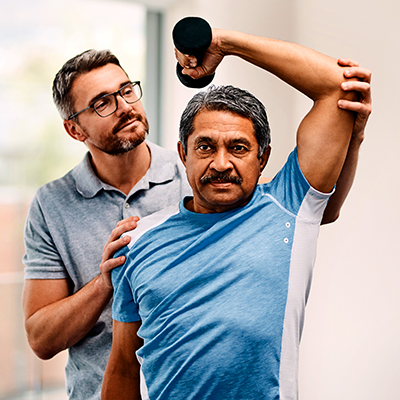
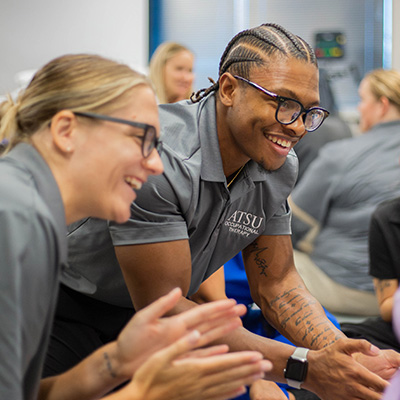
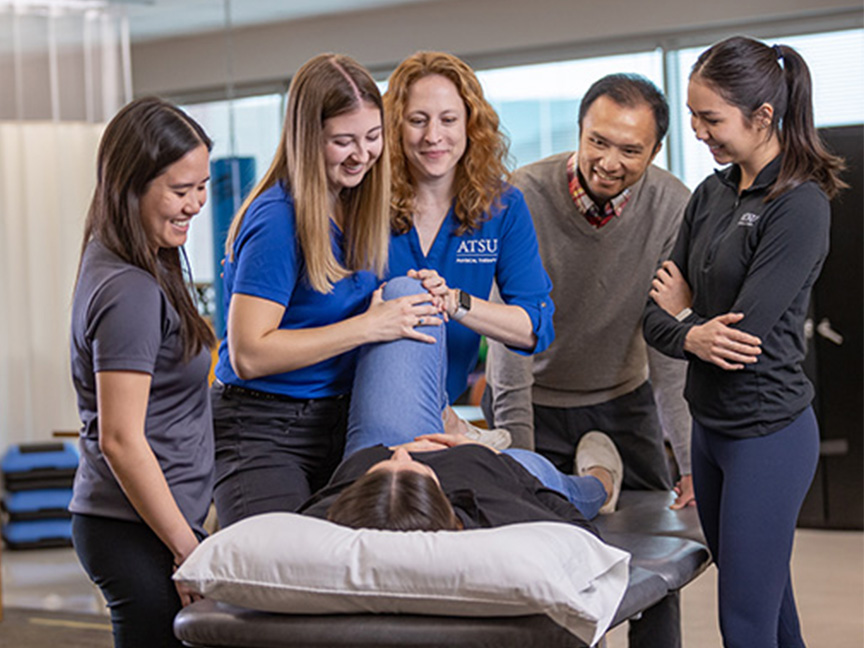
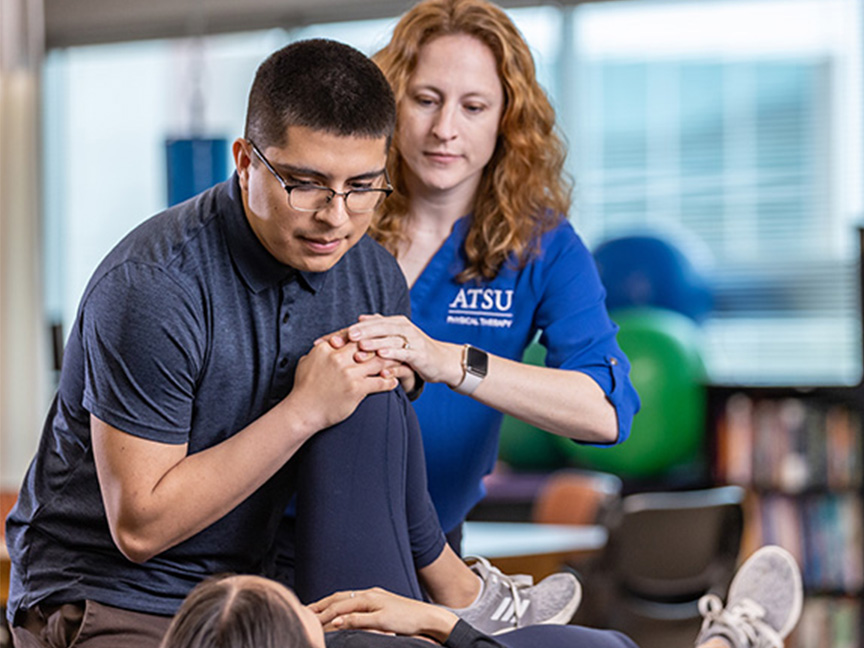
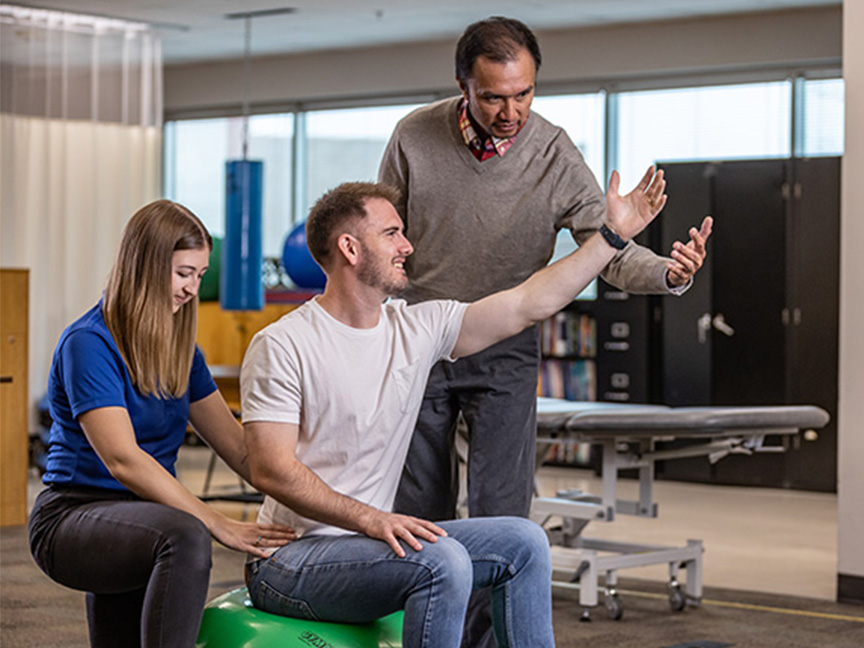
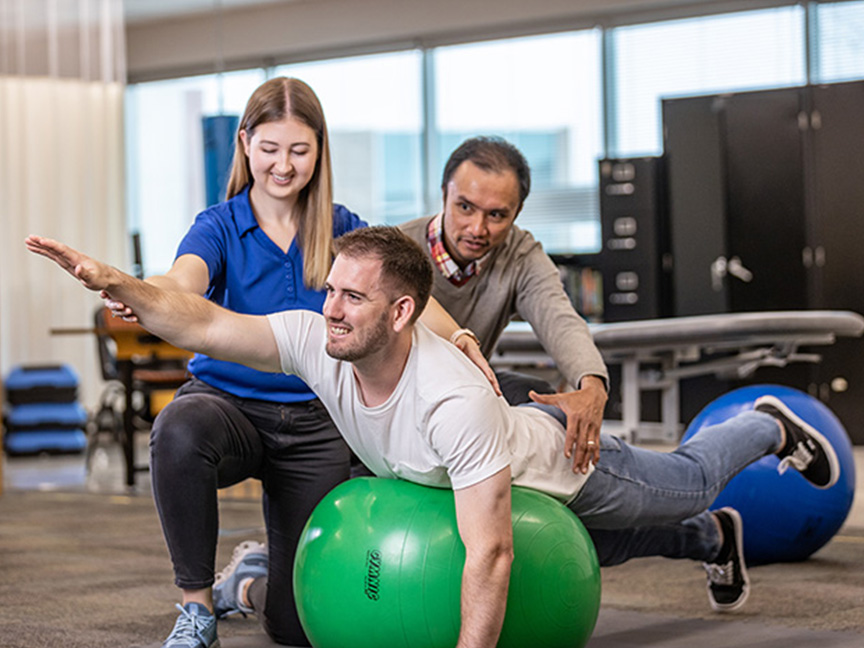
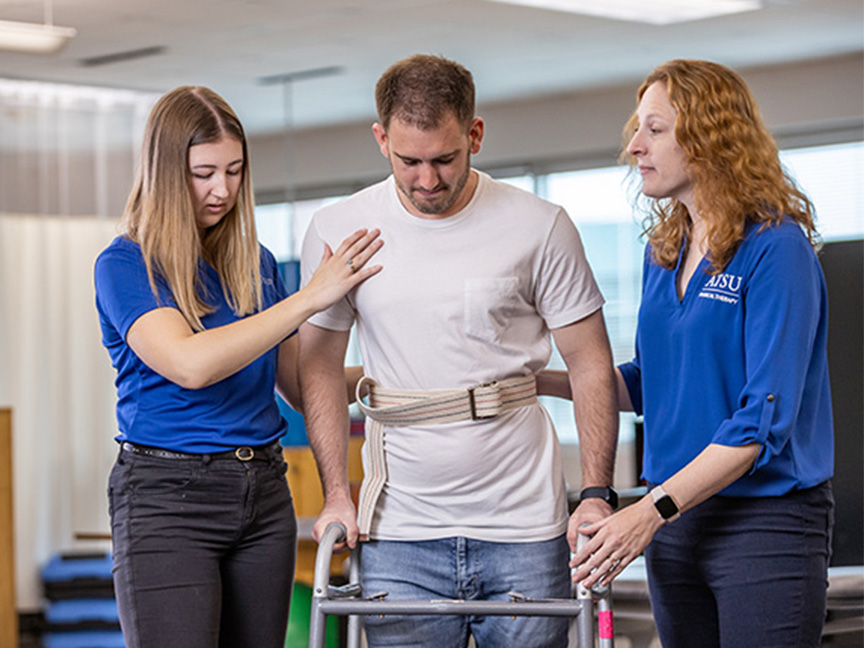

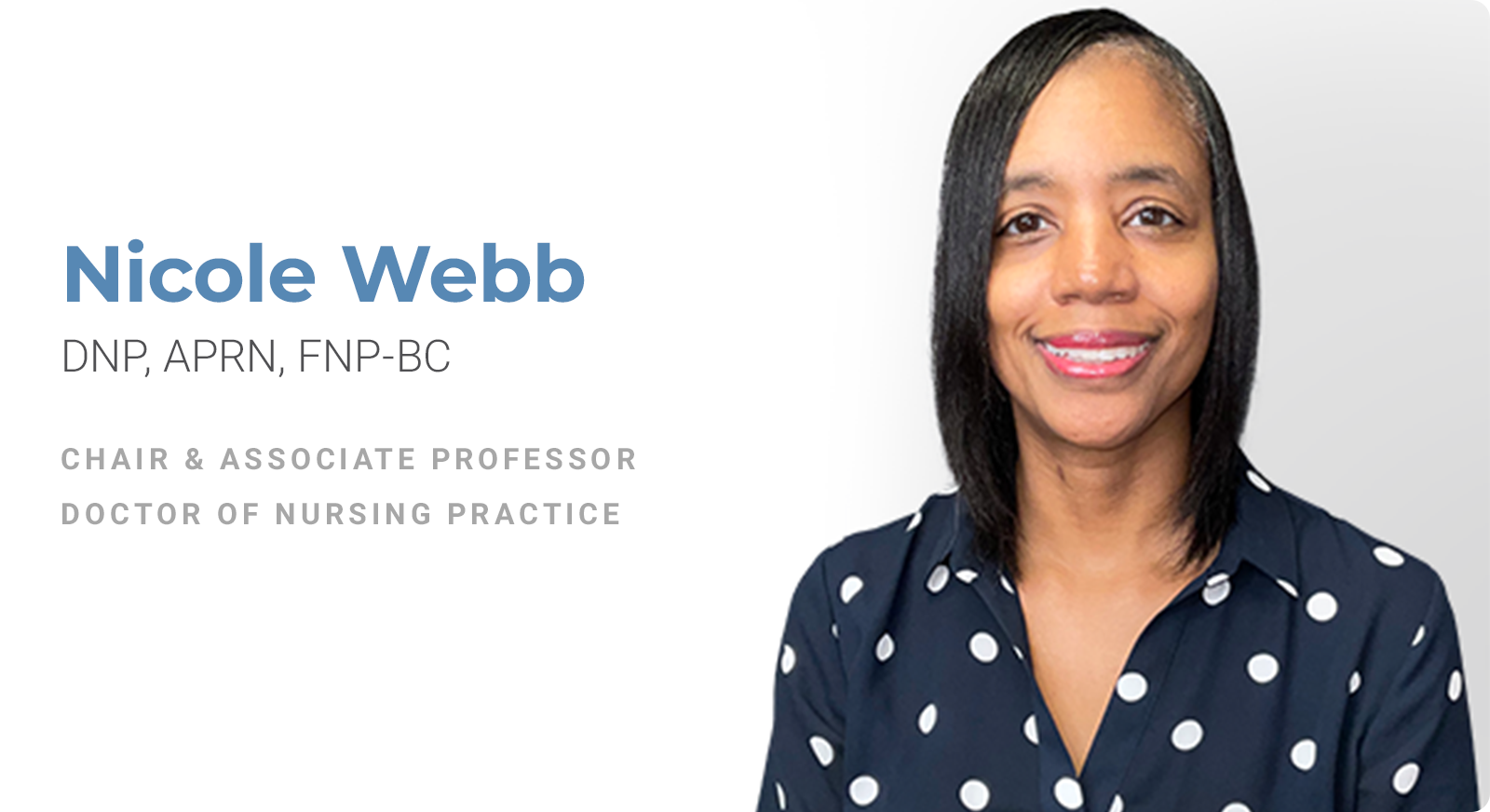
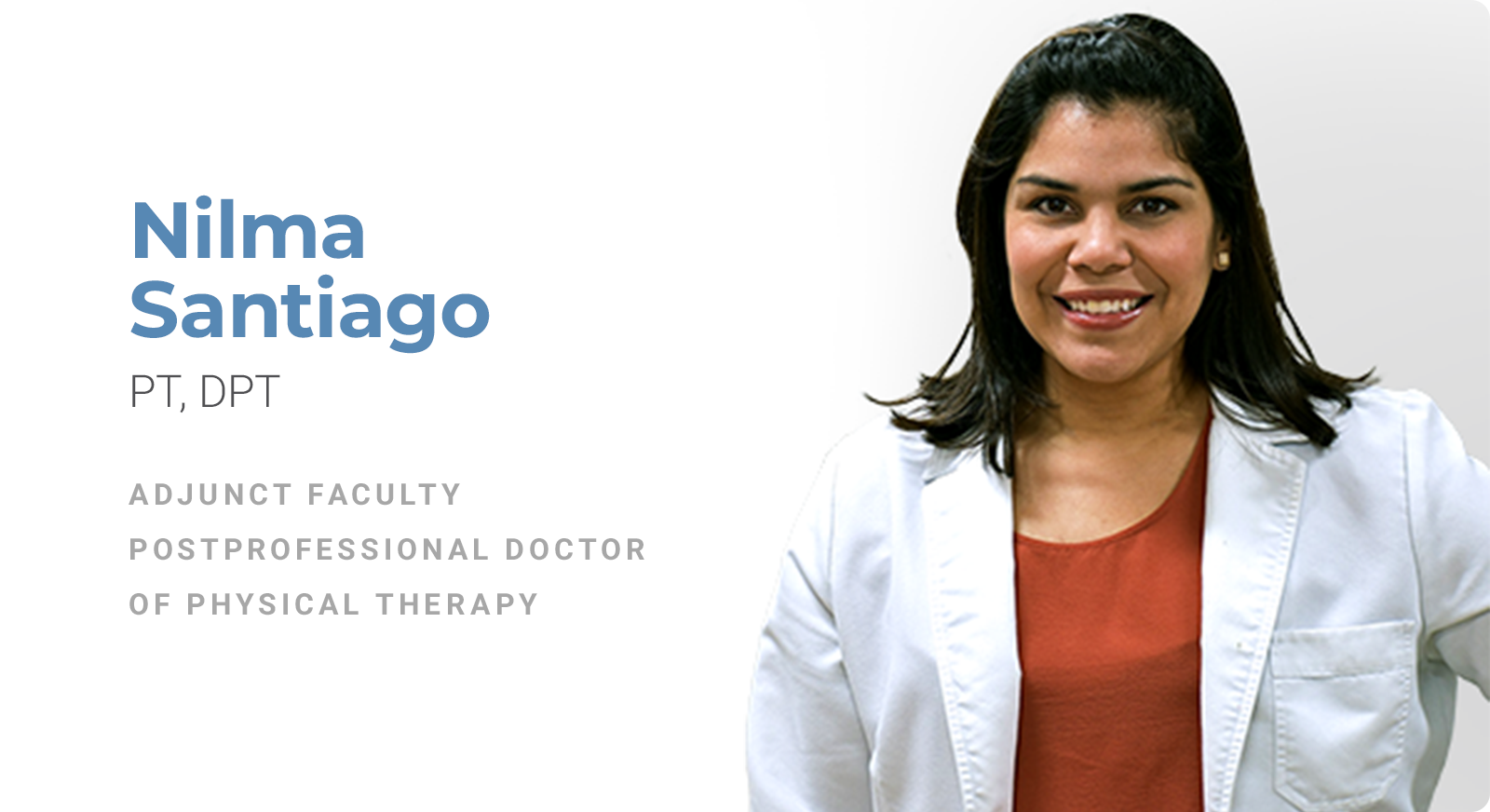
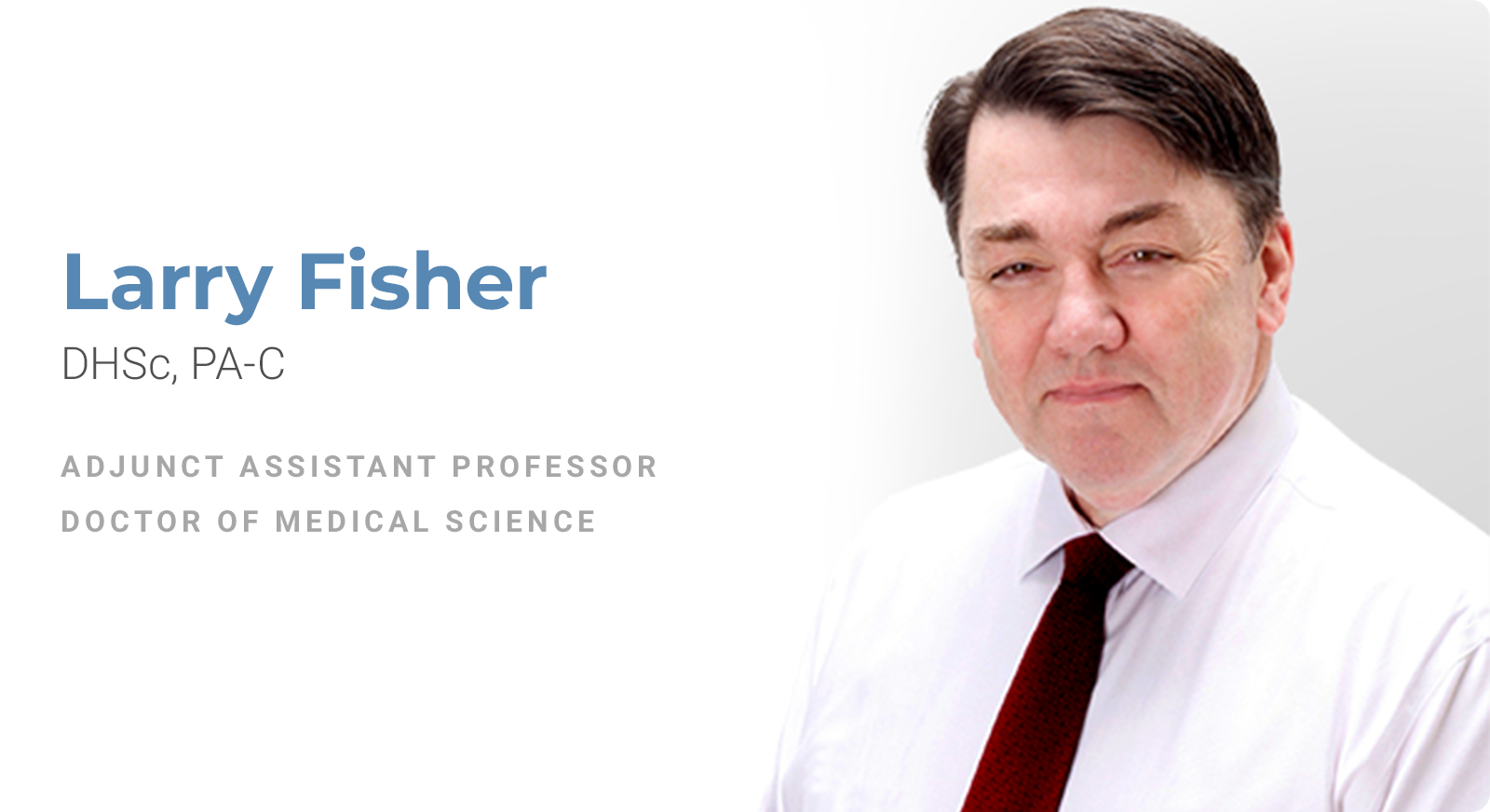
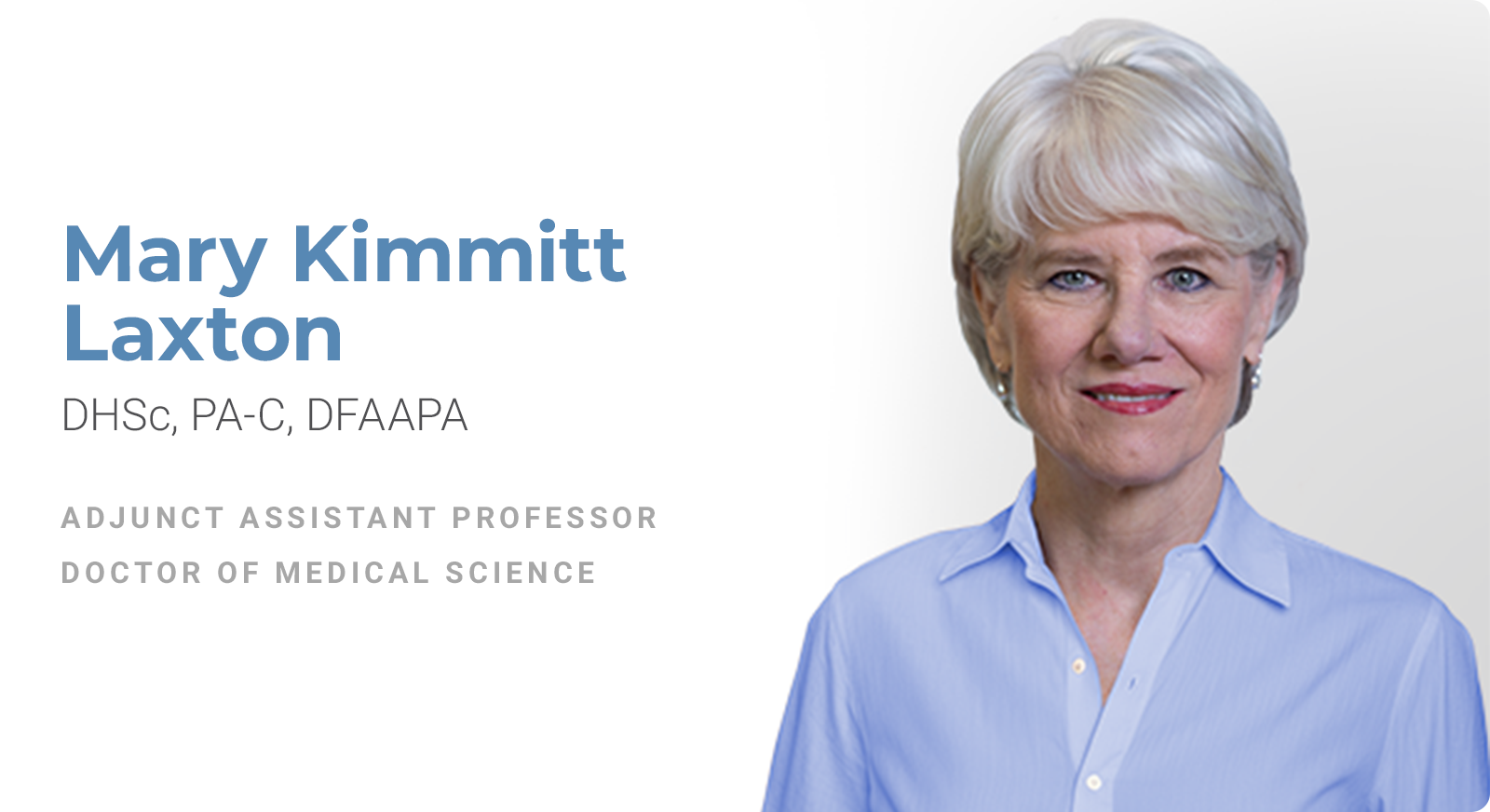
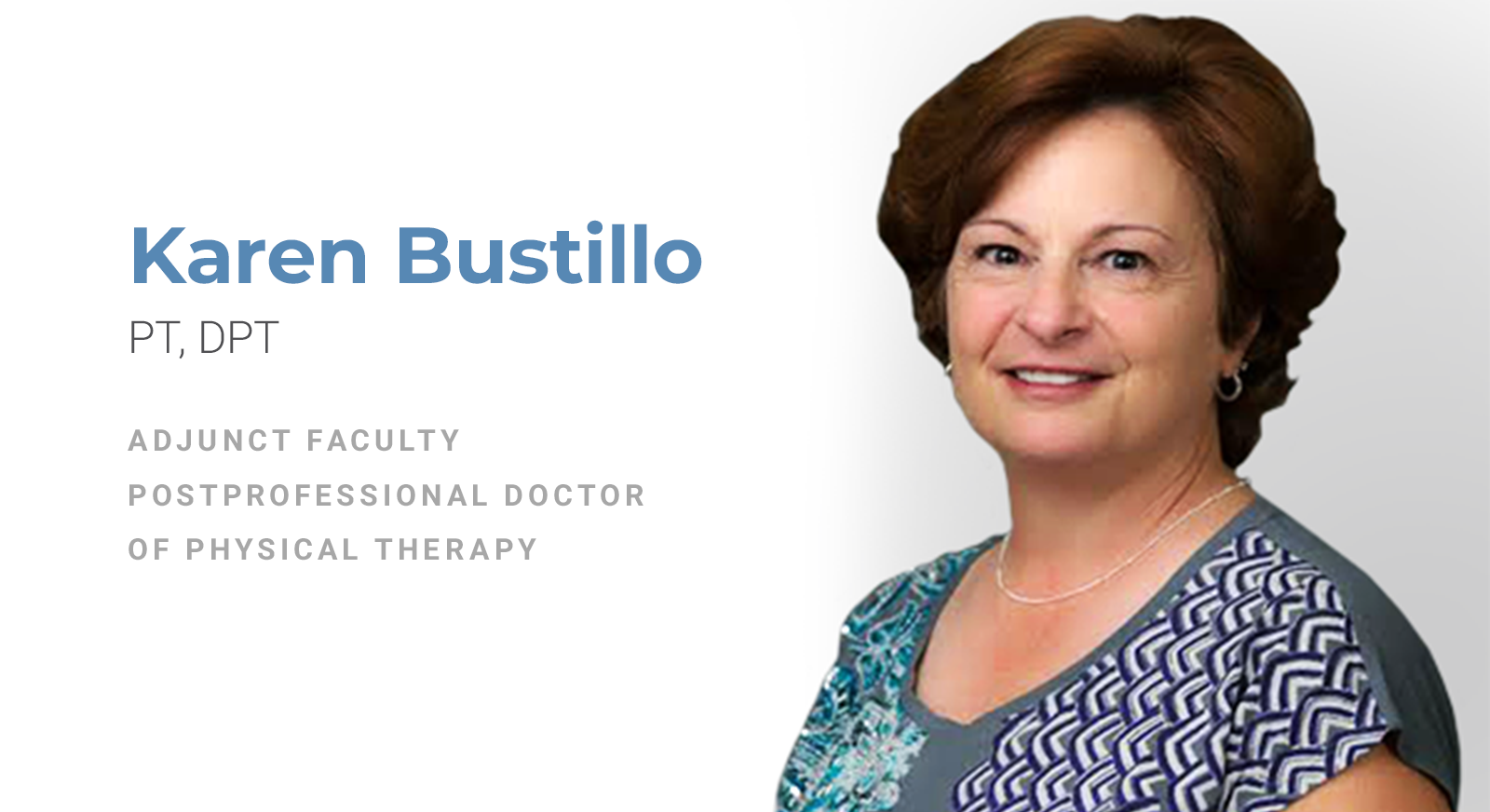
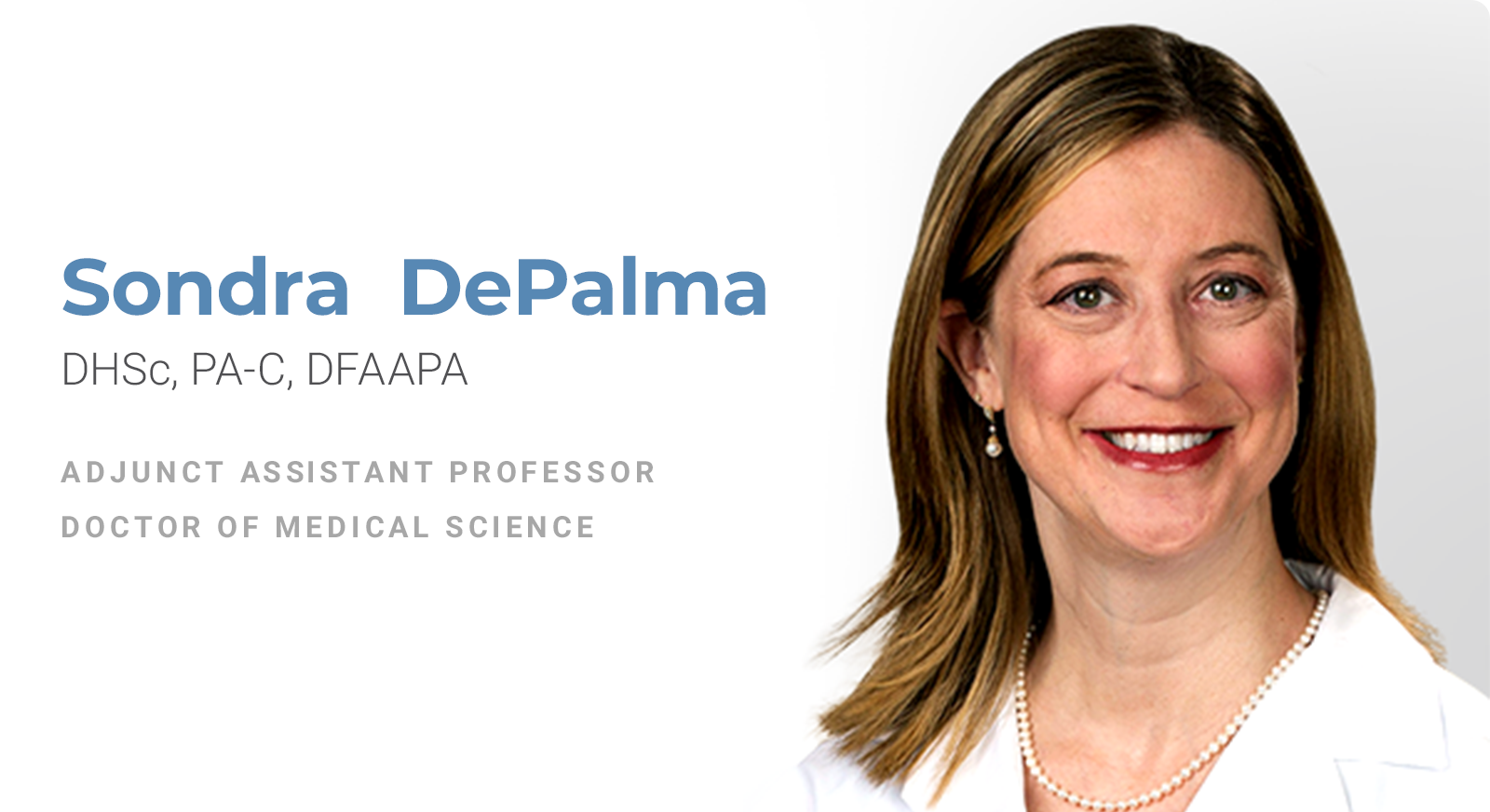


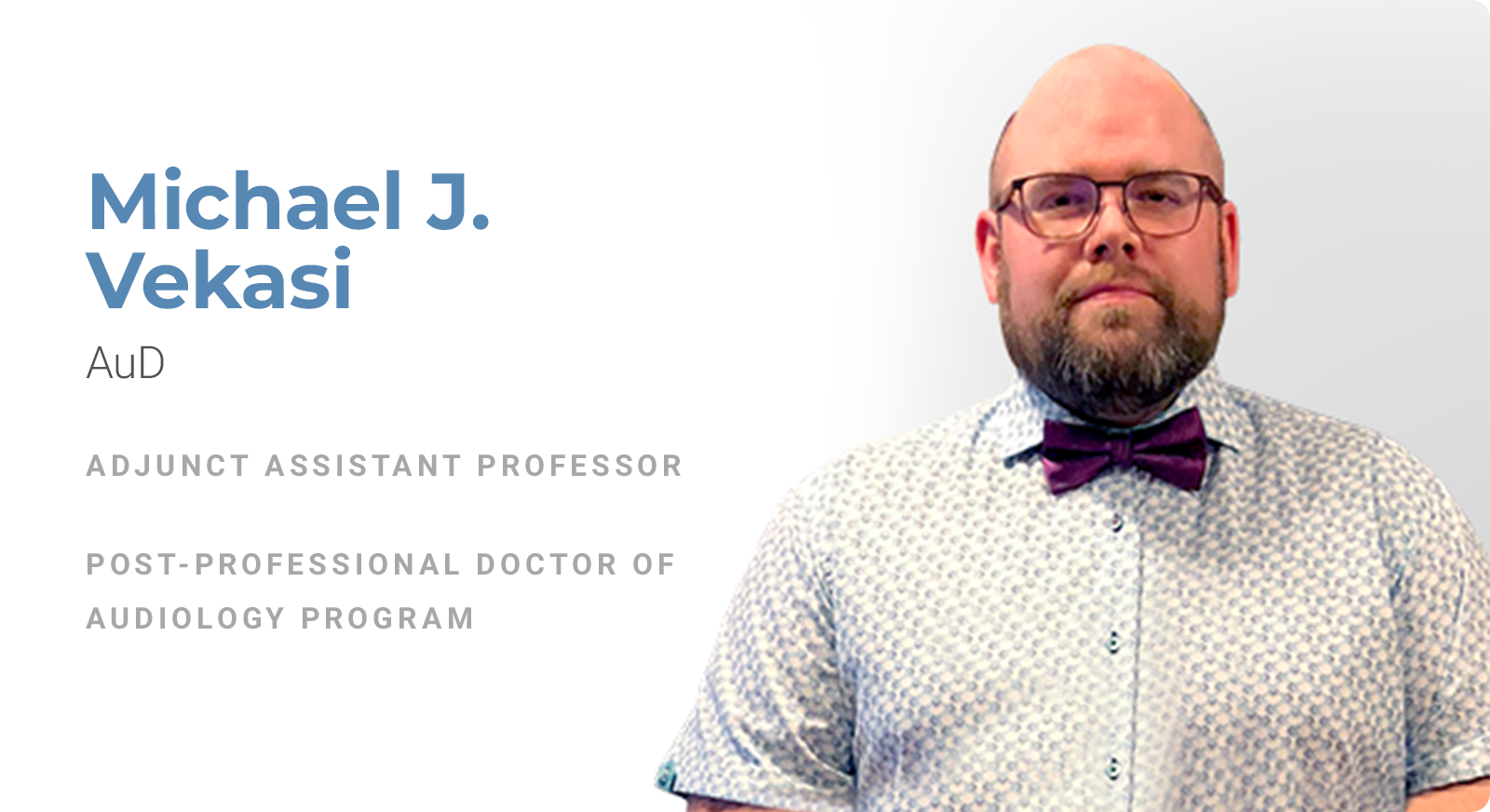

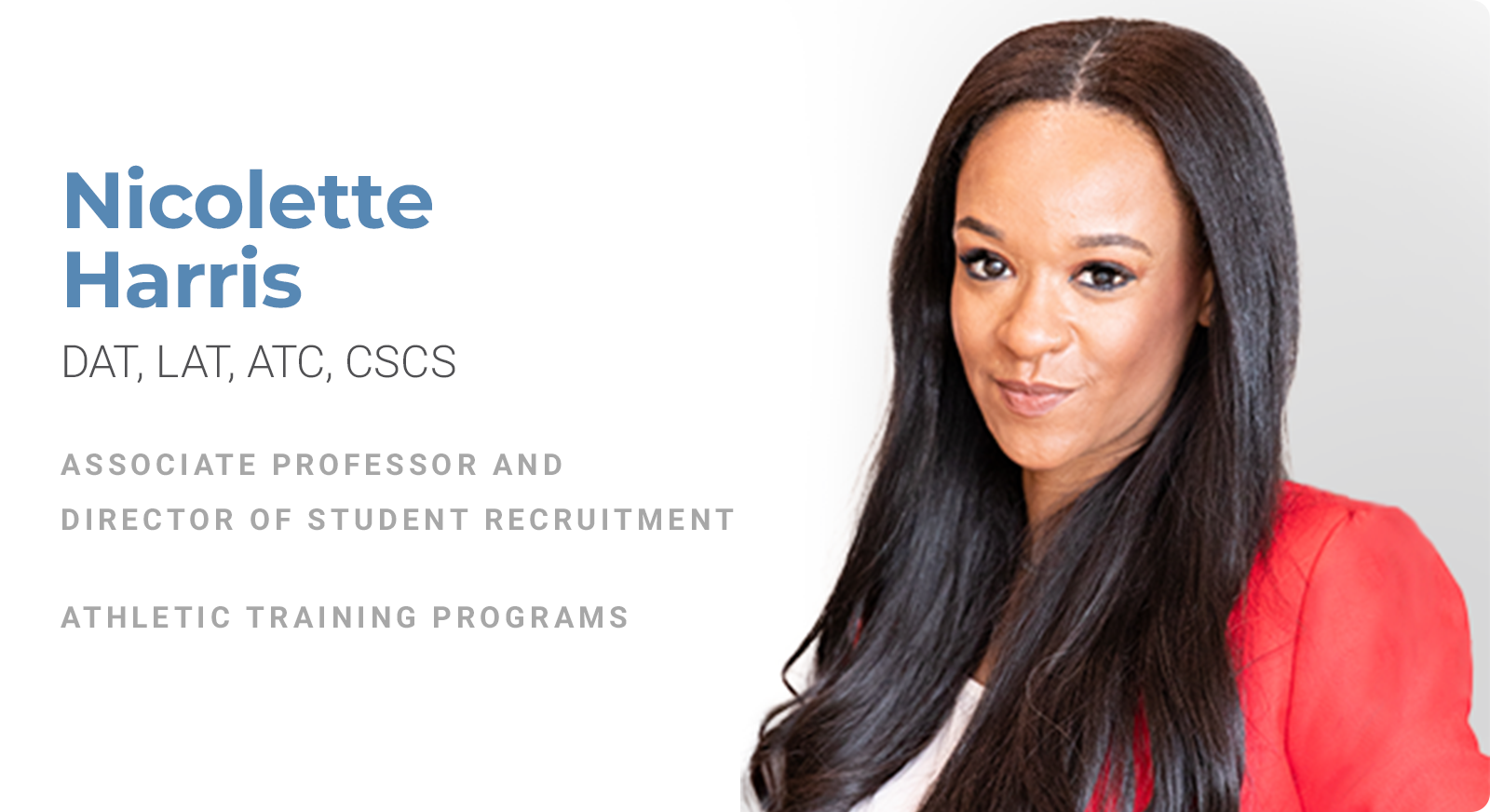
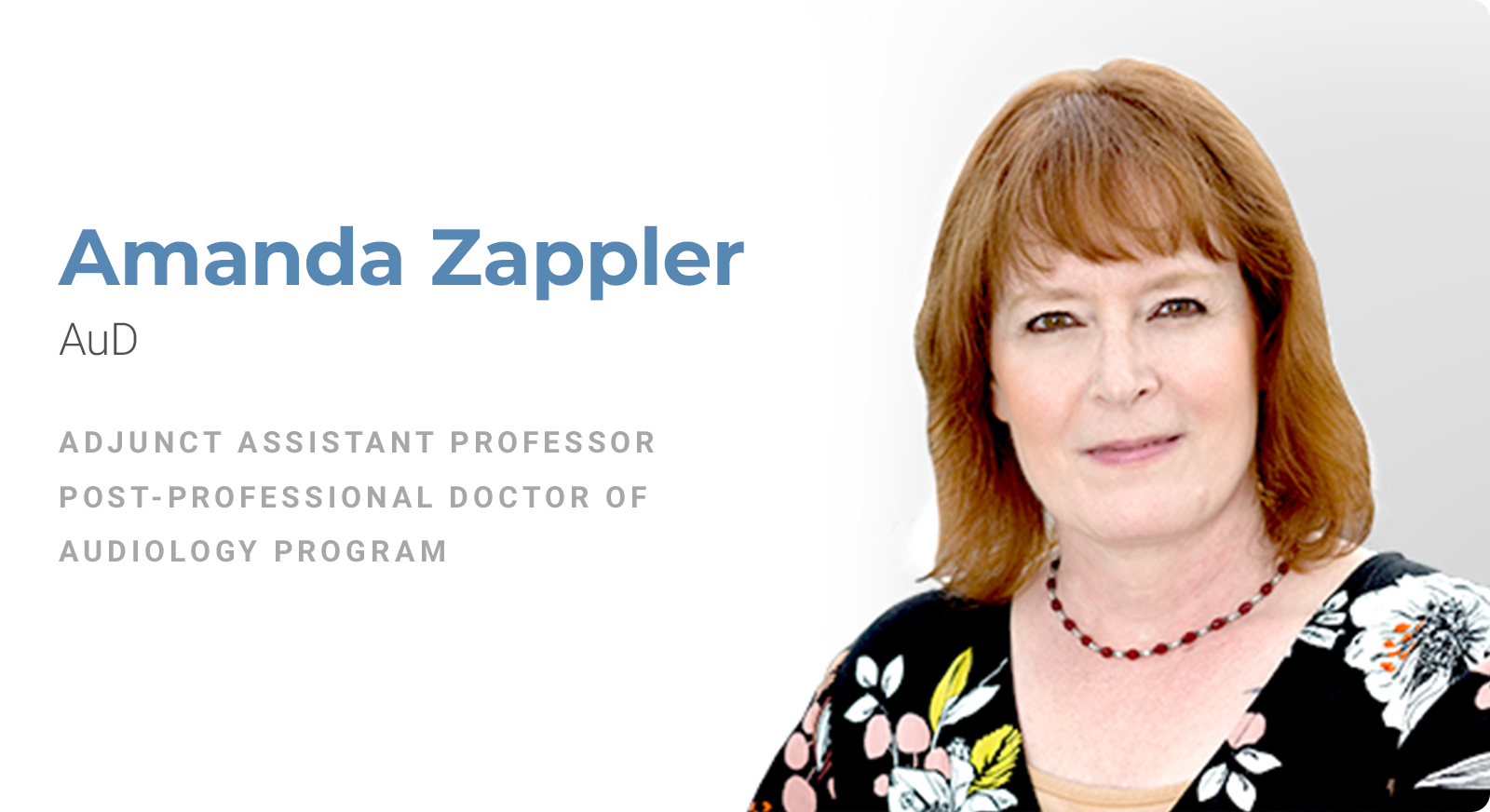
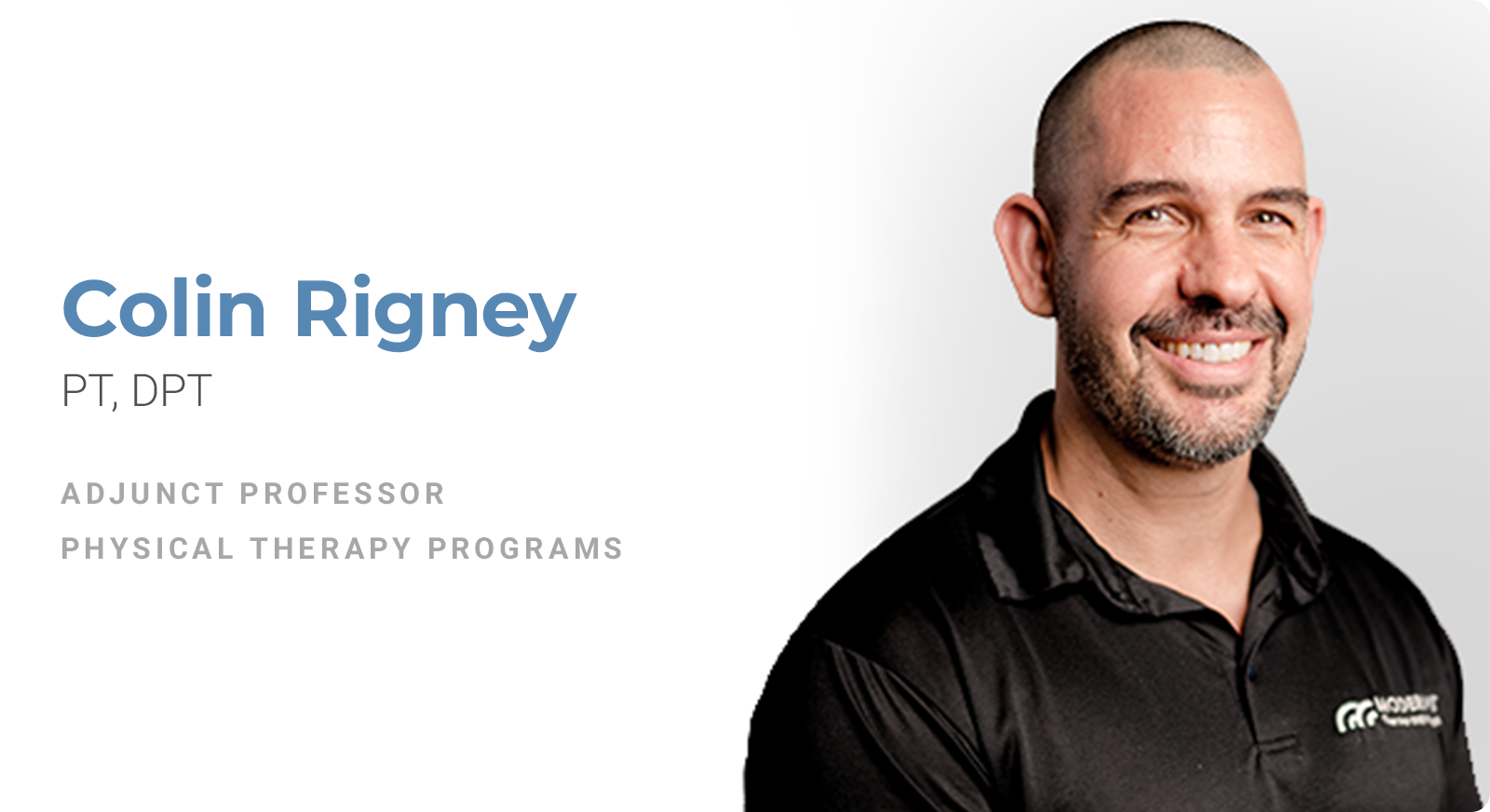

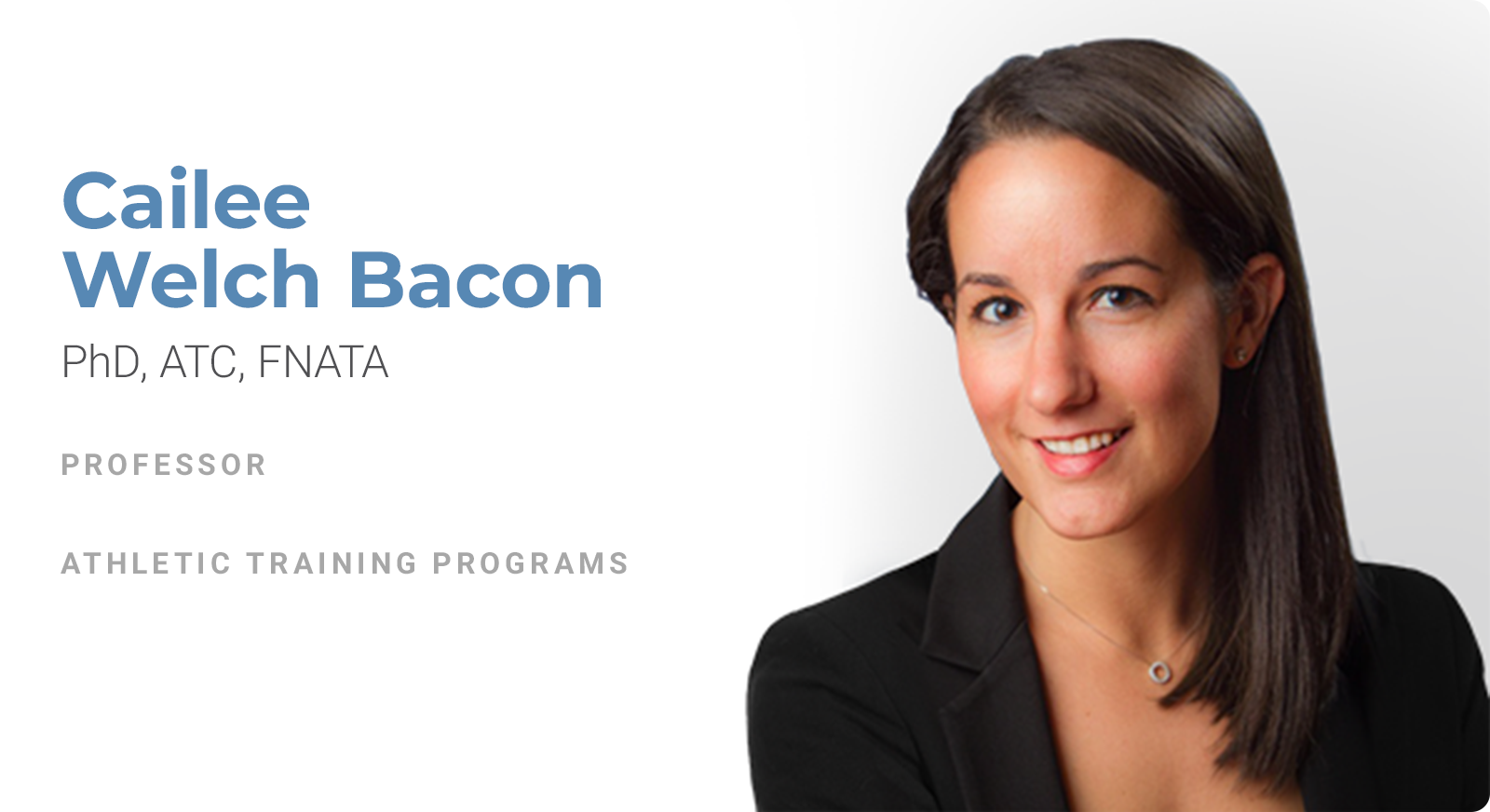
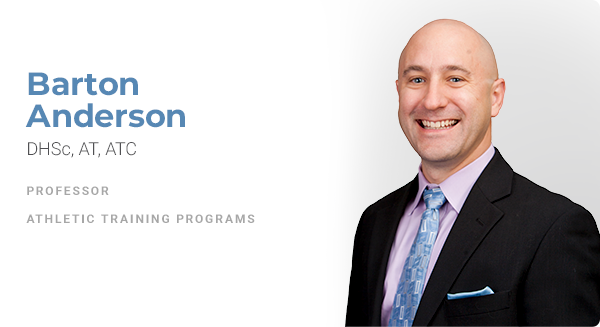
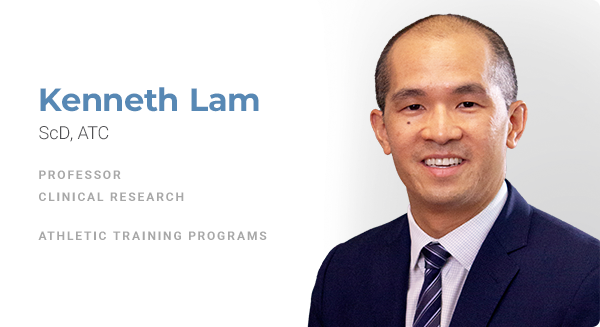
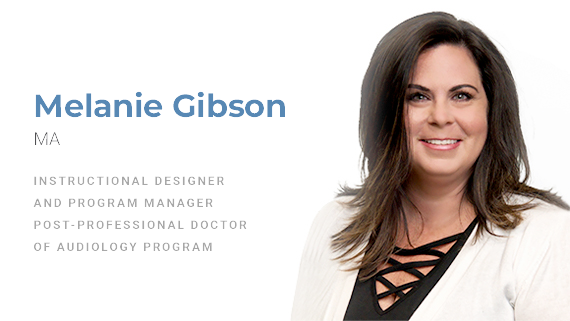


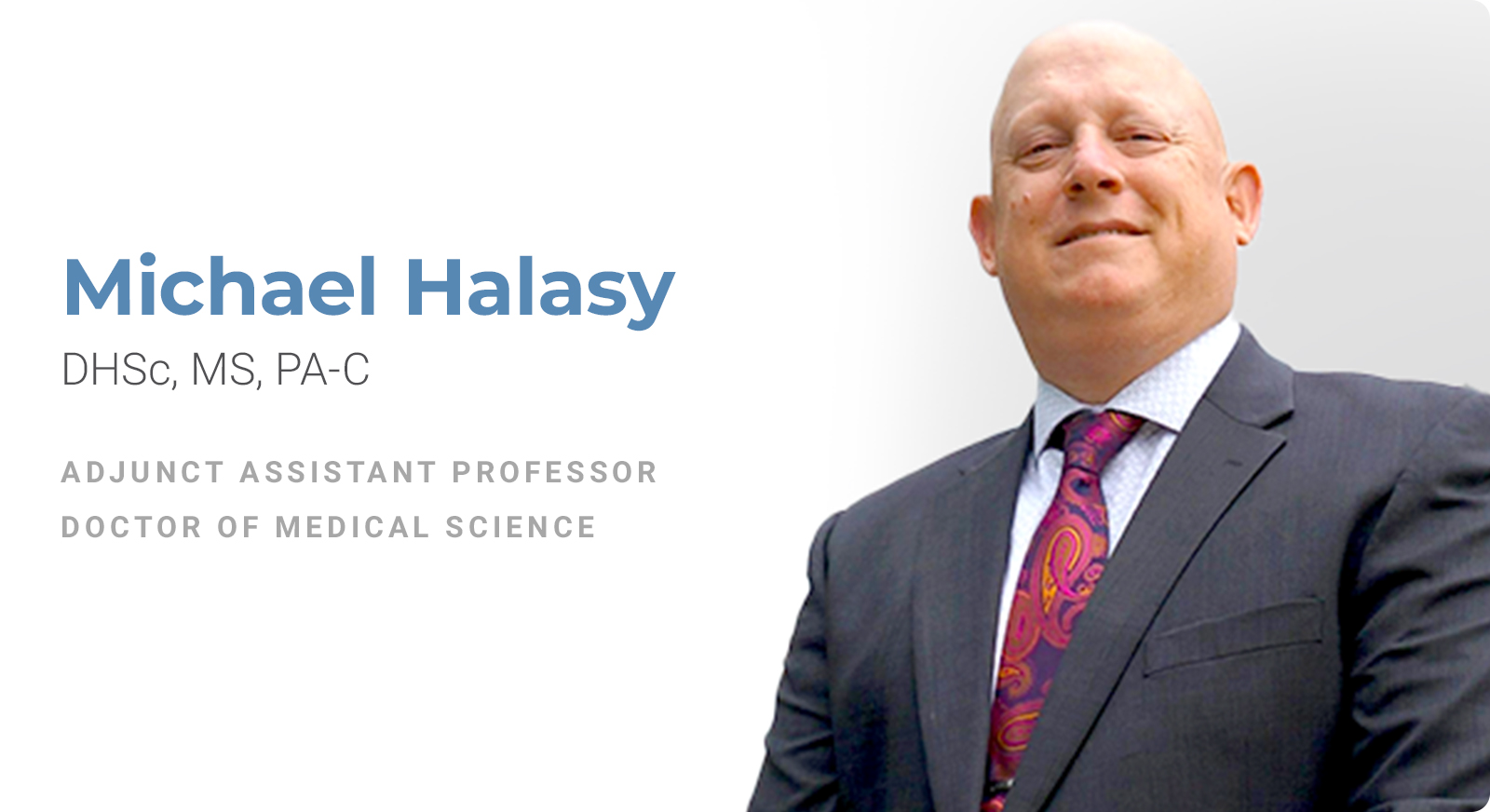
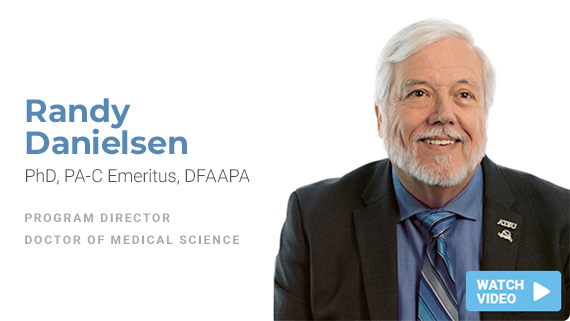
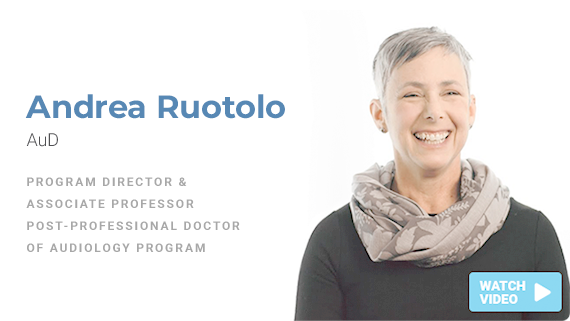
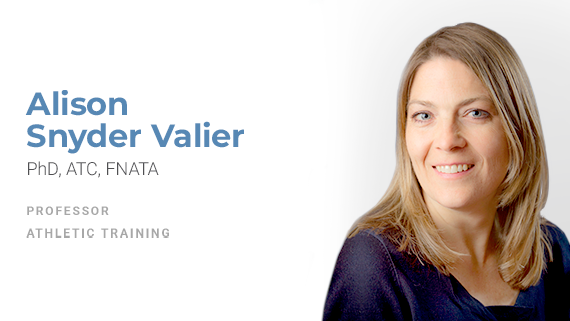





.png)


